This is the triumphant conclusion of my mind-opening and heart-healing conversation with Meredith Miller. We discuss mappers and packers (two different types of thinkers); revenge versus justice; Mussolini’s fate; corporativismo rebranded as “public-private partnership”; how to defeat petty tyrants; warrior wisdom; kintsugi; resilience; and post-traumatic growth on both individual and societal levels. Below are links to the preceding questions.
Warning: This post includes graphic historical images of violence taken by Meredith’s grandfather while he worked for the Office of Strategic Services (OSS) during World War II.
Q&A #10
MAA:
Reading about your near-death experience gave me goosebumps, Meredith. I have never heard anyone describe such a state of consciousness with so much exactitude.
That reminded me of a 1997 software engineering article by Alan Carter and Colston Sanger called Thinking About Thinking. The authors discuss two different types of thinkers: mappers and packers.
Mappers possess a rich mental map they are constantly updating with newly integrated knowledge. They can quickly become competent in an unfamiliar domain because their pattern-recognition capabilities enable them to map their existing understandings to the new realm. The ability to perceive relationships between disparate disciplines empowers them to design elegant solutions.
Packers, on the other hand, accumulate “knowledge packets,” which the authors describe as “little bits of truth (or errors).” If they encounter a situation for which they have not yet collected a knowledge packet, they are often flummoxed and must rely on others to tell them what to do.
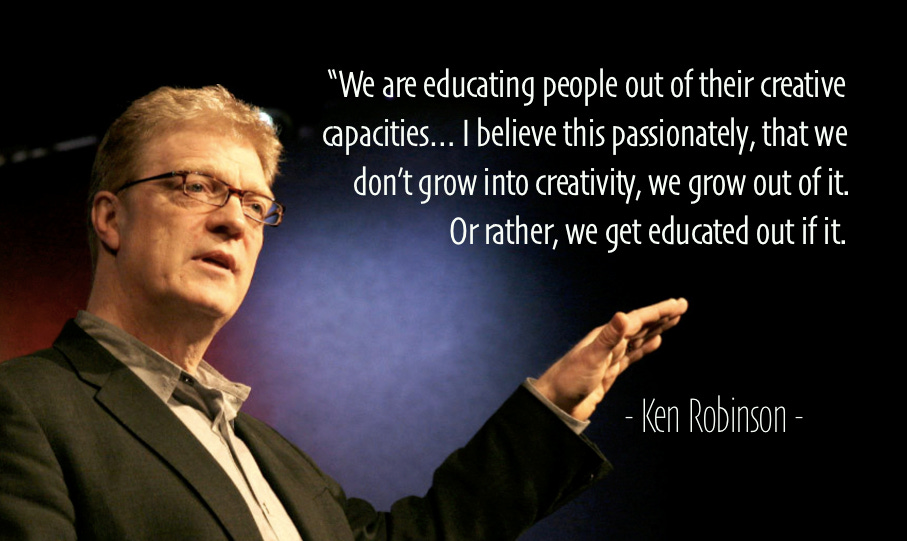
Packers make up the majority of the population, likely because the education/indoctrination system has been designed to stifle creativity, imagination, and independent thought while promoting conformity, obedience to authority, and groupthink.
Packers make up the majority of the population, likely because the education/indoctrination system has been designed to stifle creativity, imagination, and independent thought while promoting conformity, obedience to authority, and groupthink.
Almost invariably, the people who saw through the COVID narrative are mappers, whereas those who imbibed the propaganda are packers.
The authors write:
“Mappers are likely to be much more aware of the comparative reliability of information. Whereas packers tend to regard knowledge as planar, a series of statements that are the case, mappers tend to cross-index statements to verify and collapse them into more profound truths.”
Reading the following passage helped me understand why it has been so impossible for me to penetrate the beliefs of the propagandized:
“An aspect of packer thinking that drives mappers up the wall, is that packers often seem to neither seek out the flaws in their own logic, nor even hear them when they utter them. Worse, when flaws are pointed out to them, they are likely to react by justifying following logic that they cheerfully admit is flawed, on grounds of administrative convenience. The evidence of their own senses is not as important as behaviour learned through repetition, and they seem to have no sense of proportion when performing cost/benefit analyses. This is because packers do not create integrated conceptual pictures from as much as possible of what they know. The mapper may point out a fact, but it is one fact amongst so many. The packer does not have a conceptual picture of the situation that indicates the important issues, so the principal source of guidance is a set of procedural responses that specify action to be taken. The procedure that is selected to be followed will be something of a lottery. For the mapper, one fact that should fit the map but doesn’t, means the whole map is suspect. The error could wander around like a lump in a carpet, and end up somewhere really important. Both parties agree that they should do the ‘logical’ thing, but two people can disagree about logic when one sees relationships that the other has only ever been dissuaded from seeing.”
The reason I thought of this article while reading your account is they say mapping can “be reawakened by trauma.”
They use the example of post-WWII Japan, whose remarkable manufacturing success they attribute to the awakening of their mapping capabilities due to trauma:
“One possible way to traumatise a person might be to:
“1) Nuke them. Twice.
“2) Rip apart their rigid, predictable feudal society.
“3) Tell them the invader will be coming around tomorrow.
“4) Leave them nothing for supper.
“To eat tonight, this person is going to have to reawaken his ability to be imaginative.”
It seems your traumatic experience in Philly reawakened your mapping potential, and you were able to transcend your victimhood and then eventually help others do the same.
Going back to one of your earlier responses, your mentioning of tanatología made me think of Día de los Muertos (Day of the Dead), a Mexican cultural tradition that helps people cultivate a less fearful relationship with death.
Irish wakes are another example. These celebratory events can go on for days as people share memories and gather around the departed loved one.
In America and many other Western nations, people are more isolated from the process of dying and death. We tend to develop a pathological relationship with it, choosing avoidance and denial, which only amplifies the fear of the unknown.
That tendency was exacerbated under COVID tyranny as people were prevented from physically touching their dying loved ones in hospitals, nursing homes, and hospices. Then, once the patient passed away, the corpse was treated like a biohazard, and family members were pressured to choose cremation over burial.
Funerals were prohibited or limited to small numbers, and people lost out on the opportunity to process their grief in the presence of the body and fellow community members.
The psychological trauma inflicted by these cruel restrictions will likely leave the survivors with indelible scars of regret, rage, guilt, and loss.
The doctors, nurses, administrators, and other health care professionals who stood between family members and their helpless loved ones are culpable for depriving these people of those healing, profound exchanges so necessary during these periods of transition—and that’s beyond the role they played in accelerating or even causing these deaths by following lethal COVID protocols for up to $471,000 per patient.
That excerpt you shared from the Journal of Medical Ethics article talked about concealing the identities of staff involved in euthanizing children to protect them from the public. It reminded me of how the anonymity of death penalty executioners is typically preserved for similar reasons.
Edward Dowd shared a video by an Australian who predicts, “When the lights finally go on, we are gonna see a mass mental breakdown of the collective society.”
Do you think the scenario he describes is likely to occur, and will the rapidly red-pilled be more prone to violence and vengeance once they wake up?
I may regret saying this, but I honestly would prefer to see a mass awakening of the righteously enraged than the persistent denialism they are practicing now.
MM:
It does appear that we are on “a timeline for Fuckville” as Dave Oneegs said in the video you linked above on Dowd’s Twitter post. As the fires of chaos are closing in, all escape routes being offered to us through the social engineering solutions seem to be leading in that direction. However, we don’t have to take any of those paths.
I’m not so sure there will be a day when the lights suddenly go on due to a rapid red pill. I just don’t see that happening for the majority, though it certainly could happen for some individuals. However, if people react in rage, that could trigger others’ rage, creating a dangerous and rapidly deteriorating situation in society.
I don’t think the philanthropaths will fully lay their cards on the table. I think they will continue letting little doses of truth out because that keeps people doped up on hope. But if they were to disclose specific big truths for strategic purposes, it would probably go much like it does in Congress, where they push through an omnibus bill right before the holidays so no one pays attention to all the insane clauses that went into it.
I don’t think the philanthropaths will fully lay their cards on the table. I think they will continue letting little doses of truth out because that keeps people doped up on hope.
If the social engineers decide to release through the media a massive amount of truth about the vax or the plandemic, the strategy will likely be timed right before a kinetic war starts or some other bombardment of chaos and fear such as food insecurity, economic collapse, or alien invasion. That way, they could divert attention and induce a sense of powerlessness as well as triggering survival fears. When we react to information from the reptilian brain, those are probably not the best decisions.
Rage is an outward expression of powerlessness. A person who isn’t taking responsibility for processing their anger in healthy ways can either end up internalizing it into habits of self-destruction or misdirect the anger externally and hurt others. This is even more dangerous in groups, which can become enraged mobs very quickly.
It can be frustrating to have to wait for more people to pierce their own denial, but I think it’s important to practice forbearance and trust the timing, not rushing things. Urgency is often a symptom of trauma. When actions are taken in such a state, the consequences are later regretted.
It’s normal to be angry toward the perpetrators for their transgressions, but some people might seek revenge. That’s the opposite direction of healing and recovery. This is the kind of thing I have warned people against over the years of speaking to victims of abuse.
Revenge is not the same as justice, yet these concepts can be confused. When people don’t get justice, they often want revenge, and this is very dangerous because they don’t consider the potential consequences. Revenge and violence will never restore what was lost or harmed. At best, they provide temporary relief but at a massive cost that’s just not worth it.
“Vengeance is a lazy form of grief and fear. It’s a false refuge.”
—Tara Brach
I think the only way a mass of people would uprise in rage would be if the media or an organization provoked those emotions and sold it as the solution. Such a scenario would likely imply the start of some sort of civil war because there would still be factions loyal to the perpetrators. The violence would then beget more violence as crime and delinquency would quickly escalate among the population in addition to a surge in organized crime similar to what happened in Italy in the 1940s.
I think the only way a mass of people would uprise in rage would be if the media or an organization provoked those emotions and sold it as the solution.
My Italian-American grandfather worked for the Office of Strategic Services (OSS) during WWII. He was sent behind enemy lines in Northern Italy, where he lived undercover with a family in the Lake Como area, documenting the military movements as well as the public sentiment toward the fascist government.
After Benito Mussolini’s long ascent and then descent from power, many Italians finally had enough of him and the fascists, even in Northern Italy, which had fallen under Nazi occupation. While the official story of his death is a bit nebulous, apparently, Mussolini was captured upon trying to escape to Switzerland with his mistress, both of whom were shot along with the other fascists in their convoy. It’s not entirely clear which Italian partisan(s) killed them, but they didn’t wait for the tribunals.
The bodies were taken to Milan and left in a pile in a public square where the people brutalized the corpses before they were hung upside-down on display. This particular place was chosen because about nine months before, fifteen people from the resistance in Milan were publicly executed there by the Gestapo. Two days after Mussolini’s savage demise, Hitler committed suicide, possibly because he wanted to end it all before the same destiny befell him. Eventually, it all came full circle, but not without leaving scars on the people and creating long-lasting division within the country. Even from the grave, Mussolini still had supporters.
My grandfather took these photos that day in the Piazzale Loreto.
If those photos could speak, they might say, “This is what happened to fascists last time.” It’s also interesting to note that the Italians waited a long time for that deliverance—over twenty years since the start of the police state, and a lot of blood was shed along the way.
What will happen this time, I’m not sure. We seem to be on an accelerated timeline. Yet the axis of evil is more covert and complex nowadays, and for that reason, it’s significantly more difficult to pinpoint the perpetrators. By the time Mussolini was captured and killed, his power was already clearly in a state of demise. He was severely weakened—physically, psychologically, and spiritually—apparently to the point where he wished for the relief of death. One could also perceive that the new global order that began in the aftermath of WWII with the formation of the UN blossomed over several decades into what we see now. Instead of overt dictators, we have much more sophisticated philanthropaths.
“Si prendono più mosche con una goccia di miele che con un barile d’aceto.”
“More flies are caught with a drop of honey than with a barrel of vinegar.”
Mussolini called his collectivist ideology corporativismo. Functioning like organs of a body (corpo), all the sectors of society were meant to “unite” and work for a common interest in subordination to the State. It was a form of social control where everything was consolidated under the State’s power, like the tentacles of an octopus.
The unelected, self-designated global thought leaders of the twenty-first century rebranded this concept as a “public-private partnership.” The alliance of governmental and nongovernmental sectors encompasses all areas of society: healthcare, education, labor, economy, climate, infrastructure, food, and energy. It’s the same racket—this is just the modern, more advanced and complex version, now extended into the digital world.
Instead of nationalism expanding its hegemony beyond borders, it’s the domain of borderless globalism. That includes the borders of our bodies, since they openly discuss getting under the skin. It’s also much murkier now because we don’t even really know who’s at the helm, whereas in the past, it was ostensibly easier to identify the perpetrators.
While their plans for total human domination are unacceptable, I think we ought to be careful what we wish for. An angry mass of people who have lost their minds and have nothing left to lose is potentially more dangerous than the petty tyrants of the globalist public-private partnership, who would enjoy nothing more than for us to destroy ourselves or beg them to govern us harder. What they’re most afraid of is our indifference. The philanthropaths need us to take them seriously.
What they’re most afraid of is our indifference. The philanthropaths need us to take them seriously.
Carlos Castaneda learned from his [now known to be fictional] teacher, don Juan Matus, who described a petty tyrant as “a tormentor; someone who intends to harm; a person who either holds the power of life and death over warriors or simply annoys them to distraction”:
“Nothing can temper the spirit of a warrior as much as the challenge of dealing with impossible people in positions of power. Only under those conditions can warriors acquire the sobriety and serenity to withstand the pressure of the unknowable.”
—Carlos Castaneda, The Fire from Within
Don Juan instructed his apprentices on successfully dealing with petty tyrants, comparing those from the time of the conquest to the ones warriors encounter in the present day (which was the 1960s–70s). I wonder what the advice would be for our twenty-first–century petty tyrants, but given what was said about the conquistadores, I think I know.
This work is mostly internal, although it also involves choosing carefully how we respond instead of react to the external world. The strategy don Juan taught in The Fire from Within is based on the attributes of warriorship: control, discipline, forbearance, and timing.
“The warrior is self-oriented, not in a selfish way but in the sense of a total and continuous examination of the self.
“To tune the spirt when someone is trampling on you is called control.
“Instead of feeling sorry for himself, he went to work mapping his (the petty tyrant’s) strong points, his weaknesses, his quirks of behavior. To gather all this information while they are beating you up is called discipline.
“Forbearance is to wait patiently, no rush, no anxiety, a simple joyful holding back with the spirit something the warrior knows is rightfully due. It doesn’t mean that the warrior goes around plotting to do anybody mischief or planning to settle past scores. Forbearance is something independent. As long as the warrior has control, discipline and timing, forbearance assures giving whatever is due to whoever deserves it.
“Timing is the quality that governs the release of all that is held back. Control, discipline and forbearance are like a dam behind which everything is pooled. Timing is the gate in the dam.”
We can extract some valuable wisdom from don Juan’s words and apply it to the global situation as well as using it to gauge how it’s affecting each of us personally. We are dealing with petty tyrants who are abusing their positions of power in the world. We have subscribed, whether actively or passively, to the perception of reality they have sold us in which they are the righteous rulers and we are the powerless subjects at their mercy. I think don Juan would say we are taking them entirely too seriously.
We don’t have to accept the globalists’ world vision for us. They would love to trick us into thinking that so they can keep using us as pawns to create a digital prison planet in which we participate in our own slavery, serving their grandiose desire for omnipotent power. If we react from automaton behavior, that’s exactly what will happen.
We don’t have to accept the globalists’ world vision for us. They would love to trick us into thinking that so they can keep using us as pawns to create a digital prison planet in which we participate in our own slavery, serving their grandiose desire for omnipotent power.
If we let them provoke the reaction of an angry rebellion, the people could end up participating in their own demise, which would be tragic for individuals and society. As don Juan states:
“Anyone who joins the petty tyrant is defeated. To act in anger without control and discipline, to have no forbearance is to be defeated.”
Of course, warriorship is not for everyone. Many people will likely choose to remain victims, including those who act on rage, while others will cross the threshold of self-responsibility between the powerlessness of the victimhood and the empowerment of the warrior’s domain. This is a choice that each of us will make, and our individual choices will contribute to our societal trajectory.
Don Juan taught Castaneda that warriors use petty tyrants to destroy their sense of self-importance, which is man’s greatest enemy and that which consumes most of our energy.
“The mistake average men make in confronting petty tyrants is not to have a strategy to fall back on. The fatal flaw is that average men take themselves too seriously. Their actions and feelings as well as those of the petty tyrants are all important.
“Warriors on the other hand not only have a well-thought out strategy, but are free from self-importance. What restrains their self-importance is that they have understood that reality is an interpretation that we make. That knowledge was a definitive advantage the seers have over the petty tyrants.
“Petty tyrants take themselves with deadly seriousness, while warriors do not.”
We could learn from this useful wisdom, to shift perspective and not react in hate or rage, yet maintain our values and temper our spirits through these ordeals with petty tyrants. We can use these challenges to develop the courage to face the unknown and eventually create a world that we actually want to inhabit. When we free up that energy, we can rechannel it to navigate the planetary transformational cycle that is unfolding in our lifetime.
Q&A #11
MAA:
In addition to the reports about don Juan being fictional, there have been some unsettling accusations about Carlos Castaneda being a fraud, his involvement in a cult, and five women committing suicide after his death. That doesn’t negate the value and relevance of the quotations you provided, but I am curious about your thoughts on these matters.
MM:
Over the decades, people have speculated that don Juan was a conglomerate of several teachers/influencers Castaneda had come across as well as wisdom he extracted from his own journeys with plant medicines. Any of that is possible, but no one really knows.
The theory of the suicides is also possible but remains an allegation. LAPD is notoriously abusive, corrupt, and horrible, and the three-letter agencies might have also been involved in covering up information as was rumored with Timothy Leary, Alan Watts, and some other thought leaders. Unfortunately, the media also misrepresents some of the concepts Castaneda taught like “stopping the world” and “erasing personal history,” and the way they mention some death cults in the articles is a subtle way of trying to conflate Castaneda and his students with Heaven’s Gate and similar groups. He was involved with Hollywood, where a lot of nefarious things take place and where ideas (including mind control) get planted by handlers. I suspect there was an agenda to purposely bury the wisdom that can be extracted from his writing, which is best accomplished through ad hominem attacks, whether those accusations are true or not. In Castaneda’s case, that was easy to do since he very likely had a personality disorder.
I don’t doubt that Castaneda was a narcissist or some type of psychological abuser. My teacher in Peru is as well, and that’s why I didn’t really keep in contact with him. I lived with him and saw him from the inside, though his students who would come for a week or so wouldn’t see that side of him. It was a big, long struggle to be able to divorce his cruelty and abuse from the valuable wisdom he taught me because for a while it was all entangled. In the end, I was grateful I had those experiences and learned from my own mistakes. It was all part of the humbling of my ego, and the lessons helped me become who I am today.
It was a big, long struggle to be able to divorce his cruelty and abuse from the valuable wisdom he taught me because for a while it was all entangled.
Unfortunately, many teachers, leaders, or other influential figures with such personality traits end up acting as gatekeepers of important wisdom, and the closer you get to them, the more dangerous it is. They’re usually also hypocrites, saying one thing while doing another. The descriptions of Castaneda’s students’ experiences are very similar to what people say about Teal Swan, and she adamantly denies those allegations, too.
My grandfather who was involved in the OSS mission in Italy was also a psychopath and pedophile. He is the one who sexually abused me when I was a child, which is actually where our dialogue started. My family still idealizes him. I referenced Dr. Bessel van der Kolk earlier, and he has been accused of abuse in the workplace, even being fired from the trauma organization he directed. Yet no one in the psychology industry talks about it, and he still teaches in plenty of trauma workshops nowadays. He’s one of the top world-renowned trauma experts and has very valuable contributions to the field, although he appears to not be an upstanding character.
I don’t know why Castaneda was involved in academia when his interests weren’t really anthropology but rather mysticism, but we now know how corrupt the entire institution of academia is, and maybe he was purposely placed there. His books should’ve been classified as mysticism—that way, people could extract the wisdom from the story and not take everything so literally such as “jumping into the abyss.” The only thing I do know for sure is a lot of the information Castaneda shared is valuable life wisdom, and the parts I included in the last question I think can be helpful for facing our current global predicament.
These are uncomfortable topics. Eventually, the same thing will come up with some big names in the freedom movement who are cut from the same cloth as those abusers. It’s a relevant struggle when people find out their idolized heroes aren’t who they thought. That’s the dissolution that results from black-and-white thinking, and it shows the dangers of idealizing people or putting anyone on a pedestal. I see a lot of people hero-worshipping figures in the freedom movement. Yet I think it’s also important to not fall into the trap of the “cancel culture,” which is often used to silence and bury important information by discrediting or “debunking” the source’s character, using accusations which may or may not be true. The dialectical thinking applied to this topic is about being able to hold both truths—as uncomfortable as that can be. It can be true that a person is abusive and has some important wisdom or provides a useful service to others. The dilemma is, can we separate the wheat from the chaff so we don’t miss the opportunity to learn something valuable, despite the unsavory character delivering the message?
Can we separate the wheat from the chaff so we don’t miss the opportunity to learn something valuable, despite the unsavory character delivering the message?
There’s another important lesson here. Petty tyrants teach warriors about freedom. That doesn’t mean they’re not responsible for how they treat people, and it isn’t a pass for abusive behavior. However, when we can see the drama of life from a higher perspective, it becomes clear that adversity is also an opportunity.
In Outwitting the Devil, Napoleon Hill writes:
“Adversity forces an individual to test his mental, physical and spiritual strength. It thus brings him face-to-face with his weaknesses and gives him the opportunity to bridge them. Adversity forces one to seek ways and means to definite ends by meditation and introspective thought.
“Adversity breaks old habits of thought and gives one an opportunity to form new habits. Therefore it may serve to break the hold of hypnotic rhythm and change its operation from negative to positive ends.… New habits offer the only way out.
“Life gives no one immunity against adversity but life gives to everyone the power of positive thought, which is sufficient to master all circumstances of adversity and convert them into benefits. The individual is left with the privilege of using, or neglecting to use, his prerogative right to think his way through all adversities.
“There is the seed of an equivalent advantage in every adversity.… Usually the seed consists of some form of knowledge, some idea or plan, or some opportunity which would not have been available except through the change of thought habits forced by the adversity.”
It “would not have been available except through the change of thought habits forced by the adversity.” This wisdom can be applied to dealing with petty tyrants on an interpersonal level as well as in our current global predicament. When Hill refers to positive thought, he’s not talking about spiritual bypassing but rather facing the undesirable reality head on and setting the positive intention to turn it into something better. We have the opportunity to find the seeds of advantage in the adversity, as Hill explained, and to transmute these experiences into something great.
We have the opportunity to find the seeds of advantage in the adversity and transmute these experiences into something great.
Due to the petty tyrants and their shenanigans, we have been challenged to break old habits of thought to get out of the hypnotic rhythm of indifference. Many people have awakened during this process and noticed the negative influences in their environments as well as in their own unhealthy habits, often moving or changing close associations to harmonize with those on a similar wavelength. Some of us got off social media for the same reasons.
Hill points out that after we master our own inner struggles with adversity, the most useful tool we have for success is the power of masterminding together with others who share the same definite goals. This is why I emphasize the importance of having allies when leaving abusive systems and setting boundaries with those who are still enabling the abusers.
He also provides some insightful wisdom about the power of the social environment over a person’s way of thinking. He wrote that nature forces humans to harmonize with the dominant forces of the world just as it does in our smaller communities and homes. Harmony can be positive or negative. Hill highlights the fact that those who act with definiteness of purpose are the dominant influences and determine the rhythm of their environment:
“The law of hypnotic rhythm forces upon every living thing the dominating influences of the environment in which he lives.”
As we look around the New Normal world, both online and in real life, we can see the dominant forces in the human world (the petty tyrants) are negative, which is why so many people drift in that direction. It’s been this way for a very long time, but due to the unprecedented events of recent years, many of us can see this clearly now.
We can also see little pockets of resistance growing, where we find some positive, dominant forces creating environments that are quite different from the mainstream. These changes wouldn’t have happened if we weren’t stimulated by the petty tyrants to wake up, shift perspective, and create a new, intentional path forward. Hill’s work makes it clear that each of us has the opportunity to be one of those positive, dominant forces by taking ownership of our individual mental, spiritual, and physical environments through independent thought, courage, and the act of positive intention-setting.
I used to give my power away to other people and life circumstances. It was an automatic reaction I had been trained to do since childhood. As I mentioned in Q&A #1, I didn’t have this massive realization until I was almost thirty-eight years old. In that moment, I realized I had a choice. So I firmly grabbed the reins of self-responsibility in my hands and finally took back my power. I did that while facing one of the key petty tyrants in my life. If it weren’t for the pressure of her adversity on me, I would not have become who I am today, inspiring other people to bridge the gap between trauma and purpose.
Our adversaries teach us many important lessons—if we are paying attention. We can’t control other people, including the petty tyrants. We can’t teach people how to act like decent human beings when they’re not interested in changing. Trying to do so is an express lane to frustration, anger, and powerlessness.
The practice of owning 100-percent self-responsibility for one’s choices, behavior, and consciousness leads to the development self-discipline. Over time, self-discipline grows into self-mastery. When we think, live, and act from a place of self-mastery, we are free from the tricks and games of petty tyrants and instead we can use them as motivation.
When we think, live, and act from a place of self-mastery, we are free from the tricks and games of petty tyrants and instead we can use them as motivation.
If we neglect our boundaries, we’re giving permission to the petty tyrants to have power over us. If we neglect our consciousness, we’re leaving an opening for the dark forces to enter and poison our minds with fear and doubts. Petty tyrants and other agents of darkness train us to become victims or warriors—it just depends on what we do with it. That power of choice is at the core of our freedom dilemma.
Freedom is a state of being closely related to self-mastery. It’s about freeing ourselves from outside influences, from giving away our power to other people and to our own negative thoughts. Freedom is intentionally choosing our response instead of drifting into the negative patterns provoked by fear. The only real freedom we have is the power of choice—how we think, act, and respond to life.
While it’s normal to be angry and frustrated with the way things are in the world and the fact that evil people are leading the way in just about every sector of society, it’s also important to recognize the bigger-picture role the petty tyrants are playing at the personal and societal levels.
Life before the New Normal was anything but normal. We were just normalizing things with our own negative habits such as indifference, and that was unsustainable. The petty tyrants’ actions are forcing us out of our pre-2020 complacency while providing the opportunity for us to shift perspective, choose new and healthier habits, align with those we want to harmonize with, and in doing so, create a new path forward.
Q&A #12
MAA:
As you alluded above, we started this dialogue by discussing the heinous, sustained abuse you suffered while growing up and even into adulthood.
It feels almost dangerous to say this aloud because it is the type of statement abusers might use to justify their behavior, but as you just articulated so movingly yourself, overcoming that adversity helped make you the amazingly wise, strong, and empathetic person you are today—the very type of individual who is capable of gently guiding others out of narcissistic abuse.
If you had the choice, would you erase the dark parts of your history, or would you rather have experienced those so you could become who you are now?
In your poetic piece on liminal spaces where you describe us as being at the threshold of something new, you write:
“You re-integrate aspects of yourself that were separated and fragmented during past traumas.”
I can’t help but think of kintsugi—you have poured gold lacquer into the cracks of your soul, and the result is breathtaking beauty.
I can’t help but think of kintsugi—you have poured gold lacquer into the cracks of your soul, and the result is breathtaking beauty.
By the same token, I feel like something sublime, something magnificent, something transcendently joyous has emerged out of the COVID tyranny. Millions have awakened from their slumber, and many of us “feel more alive than ever” as you write in that essay.
Like you, those of us who have emerged as survivors are wiser, stronger, and more empathetic, and we have developed greater resilience to weather the storms ahead.
Those of us who have emerged as survivors are wiser, stronger, and more empathetic, and we have developed greater resilience to weather the storms ahead.
While I would never wish the trauma of the last four years on anyone, I personally feel I am fulfilling my deepest purpose and have gratefully joined with members of my karass all over the world who are doing the same, and I wouldn’t want to go back.
As Nietzsche writes in The Joyous Science, “The way to one’s own heaven always leads through the voluptuousness of one’s own hell.” He also says, “It is great pain only which liberates the spirit,” elaborating:
“It is great pain only, the long, slow pain which takes its time, by which we are burnt, as it were, with green wood, that compels us philosophers to descend into our deepest depths and put aside all confidence, everything good-natured, dressed-up, mild, middling, which perhaps formerly constituted our humanity. I doubt whether such pain ‘improves’ us; but I know that it makes us profound.”
In Why Suffering Can Promote Strength and Health, Academy of Ideas notes:
“Suffering, however, does more than teach, it also increases our capacity to enjoy life. For suffering exists at one end of a dipole, or set of opposites, and on the other end lie happiness and joy. As with all pairs of opposites for one to exist, so must the other—for an individual to know joy, he or she must also know the pain of suffering and the greater our capacity for one of these types of experiences, the greater our capacity for the other.”
In Time to Push, Charles Eisenstein uses the metaphor of birth to describe the transitional state, the liminal space we are in now. He writes:
“We are entering a period of struggle where it is obvious that something important is at stake and our actions matter. We are moving down the birth canal. Immense pressures will bear down on us, pause for a while, then bear down again.…
“Normal is not going to return. We might slide back a little after each contraction, but never all the way back. Each will push us into new territory. That doesn’t mean the world situation will gradually improve—quite the contrary. It will intensify with each contraction until the moment we are born.
“We are going somewhere. I can’t offer proof of that, only metaphor, faith, and an appeal to your intuition. But here is one sign: The stasis that rendered us hopeless and cynical is over. That does not mean it is time to sit back and await our deliverance. It is just the opposite; now is the time when we get serious and act as if life depended on it.…
“There is often a moment as the baby slowly moves through the birth canal where it seems impossible. A moment of, ‘I can’t do this.’ Usually though, she can.
“So can we. The process humanity is undergoing was not designed to be impossible; only to seem impossible at a key moment. We can do this. It is why we are here.”
Nietzsche also alludes to the metaphor of birth in The Joyous Science:
“One comes back out of such abysses, out of such severe infirmity, and out of the infirmity of strong suspicion—reborn, with skin shed; more ticklish, more mischievous, with a finer taste for delight, with a more delicate palate for all good things, with a more blithesome disposition, with a second and more dangerous innocence in delight, at the same time more childish and a hundred times more sophisticated than before.”
How do we reconcile the euphoria we feel from the kintsugi beauty born out of this tyrannical period without in any way implying the horrific acts of the abusers are excusable?
MM:
This is the challenge of advanced-level self-healing, and this is where the nuance comes in. By the time a person can extract the gift, strength, wisdom, and resilience after trauma, they’ve processed enough grief that it’s possible to release the resentment and desires for revenge toward the aggressors.
At that point, the individual is no longer obsessed with the abusers meeting justice and deferring forward movement in life until that takes place but rather develops an acceptance of what happened. This form of acceptance does not imply tolerance of the horrific acts, excusing the abuse, or bypassing the challenging inner work of the self-healing process.
What the abusers did was heinous and indicates where they are in their own evolutionary journey. They’ve chosen to become terrible examples of humanity, and it’s highly unlikely that will change. The visible fruits of their ongoing Build Back Better campaign is an example of how perverted and distorted their perception of self and reality is.
They may or may not be faced with justice in this lifetime, and holding onto the desire to see them pay for what they did could stunt our forward movement as a human race because we would be more focused on the people who hurt us, investing our time and energy in that instead of creating a better way of life for ourselves through our daily choices, which is where we actually have control.
The acceptance I’m referring to is more like the inner peace that starts to blossom as a person accepts what happened, meaning there’s no longer a resistance to reality nor the rage of powerlessness caused by the futile power struggle.
This doesn’t imply condoning what the abusers did, staying in abusive relationships, or forgoing boundaries if and when something like that happens again. It just means that eventually the sense of inner peace becomes more accessible and valuable than the desire to be right or to receive reparations from the transgressors.
An empowered person realizes the path to becoming whole again comes from within.
The kintsugi beauty emerging from these times of tyranny and crisis doesn’t happen on its own as time passes by. It involves inner work.
The kintsugi beauty emerging from these times of tyranny and crisis doesn’t happen on its own as time passes by. It involves inner work.
From a bigger picture perspective, it’s all an evolutionary calling.
That includes narcissistic abuse, tyranny, spiritual warfare, and everything that’s happened in the post-2020 world. The painful, dark human experiences invite us to face the pain and loss, which resonate with all the unresolved pain and loss we were already carrying. It’s an opportunity to grieve wholeheartedly so we can liberate ourselves by shifting out of the denial, numbness, avoidance, bypassing, and dissociation that’s keeping us stuck in lower states of consciousness—and all the repetition compulsion that entails.
The evolutionary opportunity is to reintegrate ourselves from the separation and fragmentation of the trauma so we can restore wholeness to our souls.
Post-traumatic growth requires existential empathy—the ability to share our existential concerns with others who can hear it, feel it, and hold space for it. The healing starts by being able to talk about it. The talking doesn’t heal it, but it is the start of facing it, and this is something we can’t do alone. We need allies and supporters—not commiserators but rather those who are committed to growth and transformation—to encourage us on this evolutionary path.
As you said, something sublime and transcendently joyous is emerging from the COVID tyranny. Many people are awakening and feeling more alive than ever. This is an example of how the darkness can actually push us toward the light, and it’s where we see the control agenda of the aggressors rendered impotent.
This is an example of how the darkness can actually push us toward the light, and it’s where we see the control agenda of the aggressors rendered impotent.
I love that you’re fulfilling your deeper purpose now; feeling stronger, wiser, and more empathetic, more connected to yourself and kindred spirits; and knowing you would not want to go back to how things were before. These are signs of resilience.
The last several years have been difficult and challenging, yet I totally agree with you. I’m grateful now looking back because I realize I wasn’t living from my higher potential and purpose before 2020. The events of the recent years forced me to face more parts of myself that needed healing and integration so I could continue evolving personally and professionally.
You asked me if I had the choice, would I erase the dark parts of my history or would I rather have experienced those so I could become who I am today. I can say now that it was all worth it.
I believe our traumas and difficult life experiences are the immersion training for our unique Divine purpose. Each of us has this inner human potential waiting to be actualized. Yet it’s not a given. It must be earned, and it’s not an easy path.
I believe our traumas and difficult life experiences are the immersion training for our unique Divine purpose.
Instead of obsessing about the transgressors until there’s justice or just ignoring it and pretending nothing happened, what matters most is developing resilience. That means we need to face, feel, digest, and process what happened so we can integrate the learning, strength, wisdom, and gifts. This is the ongoing process of integrating the past to create a new future.
When we are stuck in the frozen trauma, that means the past is unresolved, which means there’s no real future because we get caught in repetition loops, replaying the past over and over again.
Resolved means that we can feel it, digest it, process it, and integrate the learning. I learned from Thomas Hübl that this is how we onboard the gifts and wisdom, which becomes the resilience we pass on to the next generation.
We will either pass on a legacy of trauma or resilience, whether we have children and grandchildren or not. Truth be told, it’s going to be a mix of both because no one ever really heals it all entirely, so it’s either going to be a heavy burden of trauma or a legacy of more light and resilience.
Resilience is about adapting and bouncing back from tragedy, trauma, threats, significant stress, loss, and adversity. It’s about feeling the feels while keeping going, continuing to cultivate greater energy, presence, embodiment, and fluidity. Resilience is a process—not a fixed state or destination.
Holistic resilience is about cultivating it on all levels of human life: physical, mental, emotional, financial, social, and spiritual. It’s about creating a new dialogue between the past, present, and future. It also requires that we explore our ancestral resilience to connect with the innate strengths we each inherited through our lineage. In the process, we start to embody greater wellbeing so we can share our gifts with the world.
Resilience is a skill and a virtue that is essential to surviving and thriving during these tumultuous times. Building resilience is a choice, and it’s the natural result of the evolutionary process. Essentially, this process of resilience is about strengthening the human spirit during challenging times on Planet Earth.
The existential crises we are facing as individuals and humanity is the cosmic invitation during these times. Like all things in life, it depends what we do with it. That’s the power of choice.
We can examine how we are responding to the evolutionary pressure. A good place to start is by reflecting and noticing how we are not the same as we were in 2020 or even last year. This is the difference between the past self and the emerging self being driven by the old sense of purpose versus the new level of purpose.
Our work is far from over.
A deeply rooted decay is progressing through our society as it also permeates the structures and systems we’ve been used to depending on all our lives. We are watching it collapse in slow motion. Consciously or unconsciously, people can sense this underlying rumbling in the world, even though most people are distracted and ignoring the massive elephant in the room—an elephant so large it’s now spawning more elephants. Every family has an elephant that’s not being talked about, much like every culture does, too.
The mass historical traumas taking place in the 2020s are triggering up to the surface all the old, unresolved traumas of individuals, families, and societies. It’s reminding each of us—at a cellular level and through the morphogenic field of our DNA—of when this happened before.
Our ancestors went through periods of crisis like wars, economic depression, natural disasters, plandemics, cataclysms, and other existentially shattering experiences. They survived, and so we exist now. This means we carry not only their unresolved trauma but also the codes of their resilience.
I believe it’s more important now than ever for us to tap into that ancestral resilience as we cultivate greater resilience in our personal lives so we can keep moving forward through the challenging times that lie ahead. The difference between what our ancestors lived and what we are being called to face is now we are entering the convergence of many levels and layers of existential crises.
I recently created The 2020s Resilience Workbook to help people cultivate holistic tools for emerging and evolving in a changing world.
As we resolve the past and generate more resilience, space opens up for the new consciousness to enter. That means we can access new ideas, insights, responses, intuition, creativity, and solutions.
We are not capable of creating the solutions for a new world while our bodies and consciousness are still frozen in the repetition of the past, avoiding and bypassing what happened or obsessing over getting justice or revenge against the transgressors. Anything created from those states will be more of the same.
It’s okay if we don’t have the answers or solutions yet. First, we create the space for it to emerge by integrating the past.
The choice to emerge and evolve from this story is ours. As each of us does the inner work, we are also digesting part of the collective trauma and encouraging others to do the same. This opens a path of light for humanity and future generations. The bigger this force of resilience becomes, the more insignificant the petty tyrants become.
This opens a path of light for humanity and future generations. The bigger this force of resilience becomes, the more insignificant the petty tyrants become.
This is the evolutionary calling to humanity. We are being called to step up and choose a different direction from the one we are currently on. We will experience increasing evolutionary pressure to awaken AND take the actions necessary to make these conscious changes. The more of us who do the work to build greater holistic resilience, the easier it will be for others.
As each of us reflects on how much we’ve changed since January 2020, we can see how we are responding to the evolutionary pressure.
The pressure is on for us to clean up this mess. The future of humanity depends on what we do with it. That process starts within the individual. As we heal ourselves, we are also healing our ancestral lineage as well as a chunk of the collective traumas. As more individuals heal ourselves, we contribute to a healing world.
As we cultivate greater awareness, energy, embodiment, and fluidity, we can be more present, access more inner resources, keep moving forward, and eventually look back with gratitude, passing on the gifts of learning to future generations.
As psychologist Donald Meichenbaum said, “The story of humankind is a story of resilience.”
MAA:
What a stunning example of resilience you are, Meredith, and the vision you have articulated is not only inspiring but empowering. Everything you have expressed aligns elegantly with Stoic teachings, so it seems fitting to close with a quote from Marcus Aurelius’s Meditations that underscores your closing message:
“Constantly think of the universe as a single living being, comprised of a single substance and a single soul; and how all things issue into the single perception of this being, and how it accomplishes all things through a single impulse; and how all things work together to cause all that comes to be, and how intricate and densely woven is the fabric formed by their interweaving.”
© Margaret Anna Alice, LLC
🙏 YOU Power This Work 💥
Only 1.85 percent of my readers are paid. By choosing to support me, YOU empower me to fight tyranny and expose democide. Thank you with all of my being.
When you subscribe, you gain access to premium content like Memes by Themes, podcasts, Consequential Quotes, Case in Point, Behind the Scenes, Dissident Dialogues in progress (“rolling”), personal writings, and bonus articles. Additionally, Founding Members receive a signed copy of my dystopian fairy tale and Canary in a COVID World (combined retail value of $38.76) as well as several special gifts.
I especially want to thank those of you who have taken the time to write a private message to me when you subscribe. I read and cherish each note.
Thank you for being part of our karass of brave, brilliant, kind, and witty thinkers.
🤲 One-Time Support
🎙 Full Doc Malik Podcast Now Out!
I previously shared sneak peeks at my Doc Malik Honest Health Podcast, and the full version is now out!
I made one embarrassing error while discussing Are You a Good German or a Badass German? I accidentally said The Wizard of Oz when I meant Alice in Wonderland. Granted, both make appearances in the article, but out of all the slips of the tongue, messing up Alice in Wonderland seems almost unforgivable 😬🤦♀️😆
🎁 New Premium Content
Something profound happened recently, and it led me to write this impromptu piece reflecting on death, nature, rescuing vulnerable creatures, safety, freedom, and a lesson from my late grandma (my namesake—Margaret) on what would have been her ninety-ninth birthday.
📣 Action Alert!
Some of you may remember reading my poem Lament of the Vaxx-Injured, which was inspired by Cody and his mother, Heather Hudson of A Mother’s Anthem.
Heather just published a post announcing Cody’s Law to help those who have been injured by the injection, hospital protocols, and emergency countermeasures.
Characteristic of the selfless dedication I have come to know in both Heather and Cody, they have transmuted their suffering into action in an effort to help fellow Floridians who have been harmed by the government, pharmaceutical corporations, and countless accomplices. The hope is that this bill will pass in Florida, and then other states can replicate the model.
You can sign the petition to express your support for Cody’s Law. Any US citizen can sign; you don’t have to be a Florida resident. I asked if non–US citizens can sign, and my contact thought that was a great idea and will be updating the petition to allow international signatures soon.
🤗 Shoutouts Gratitude
Off-Stack
Thanks to Dave Fairtex of Chris Martenson’s Peak Prosperity for sharing Mike Yeadon’s reading of Mistakes Were NOT Made in this post.
🛒 Spread the Words
If you would like to help propagate the message that Mistakes Were NOT Made, you will find a wide selection of products in this collection. Please post pictures of yourself (with identity obscured if desired) and tag me on Notes wearing your merch so I can share it in future newsletters!
📖 Get Signed Copies of My Book
📚 Anthologies
My work is featured in the following collections.
Yankee Doodle Soup for the Fringy, Tin Foil Hat–Wearing Conspiracy Theorist’s Soul
Edited by Jenna McCarthy, this hilarious anthology includes Letter to a Mainstream Straddler and Letter to Klaus Schwab. The paperback is only available for purchase at her website. If you enter the code ALICE at checkout, Jenna will give me a royalty 🙏
Canary in a COVID World: How Propaganda & Censorship Changed Our (My) World (Paperback, Kindle, Audiobook)
A Doctor’s Despair (Paperback, Kindle)
🐇 Follow Me on Social Media
⏰ Wake-up Toolkit
My Wake-up Toolkit is a great way to get acquainted with my content. I’ve organized my articles by topic for easy reference and use in your red-pilling efforts as needed. I will update this to reflect new content as it is published.
🌟 WARM GRATITUDE FOR THE RECS!
The single-most important driver for new readers joining my mailing list is Substack Recommendations. I want to thank every one of you who feels enthusiastic enough about my Substack to recommend it, and I especially appreciate those of you who go the extra mile to write a blurb!
Remember, a subscription to Margaret Anna Alice Through the Looking Glass makes for an intellectually adventurous gift down the rabbit-hole!
If you feel the work I am doing is worthwhile, please consider supporting me. I thank you for reading, thinking, sharing, and supporting my work in whichever ways you choose.
Note: Purchasing any items using Amazon affiliate links included in my content will further support my efforts to unmask tyranny.








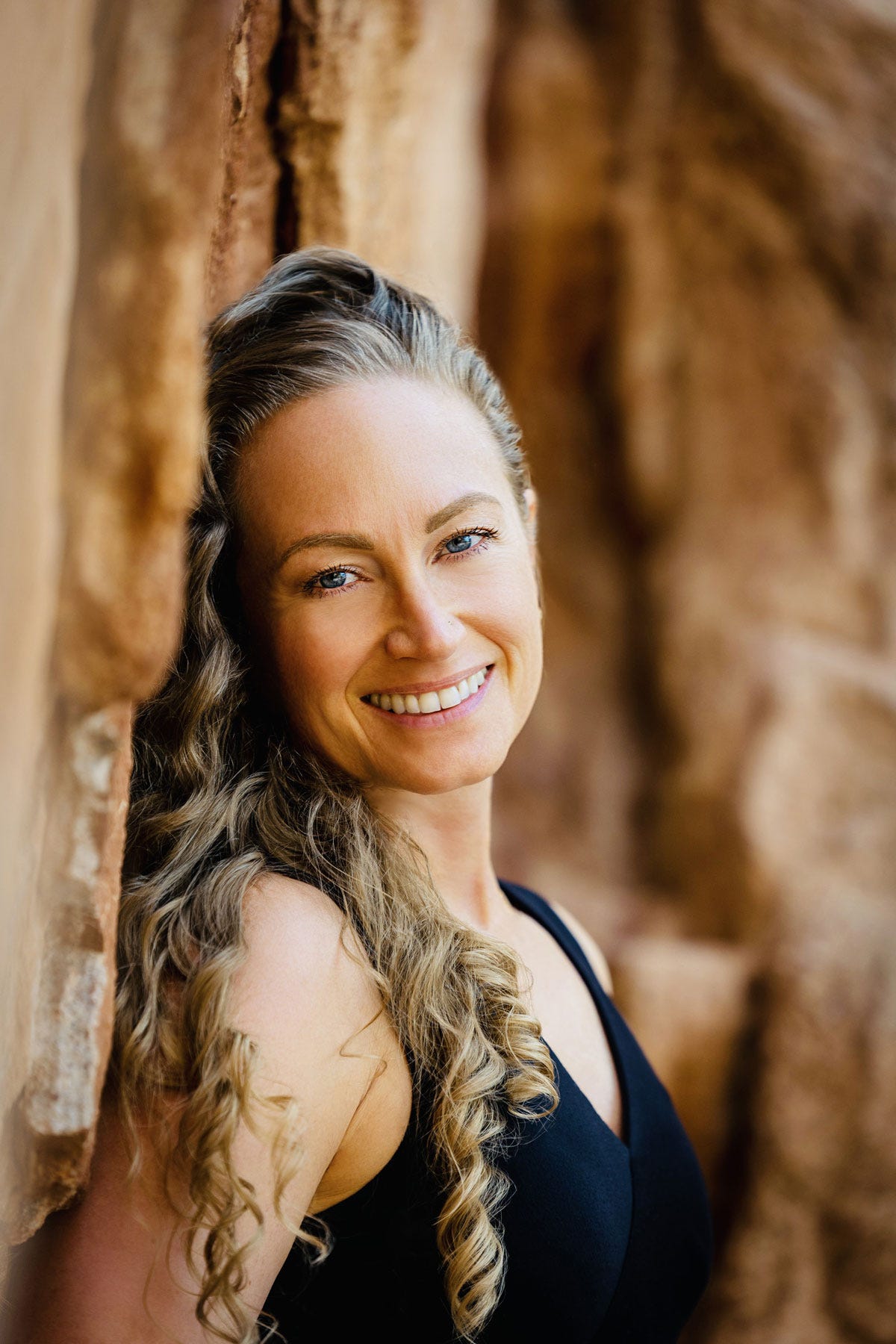
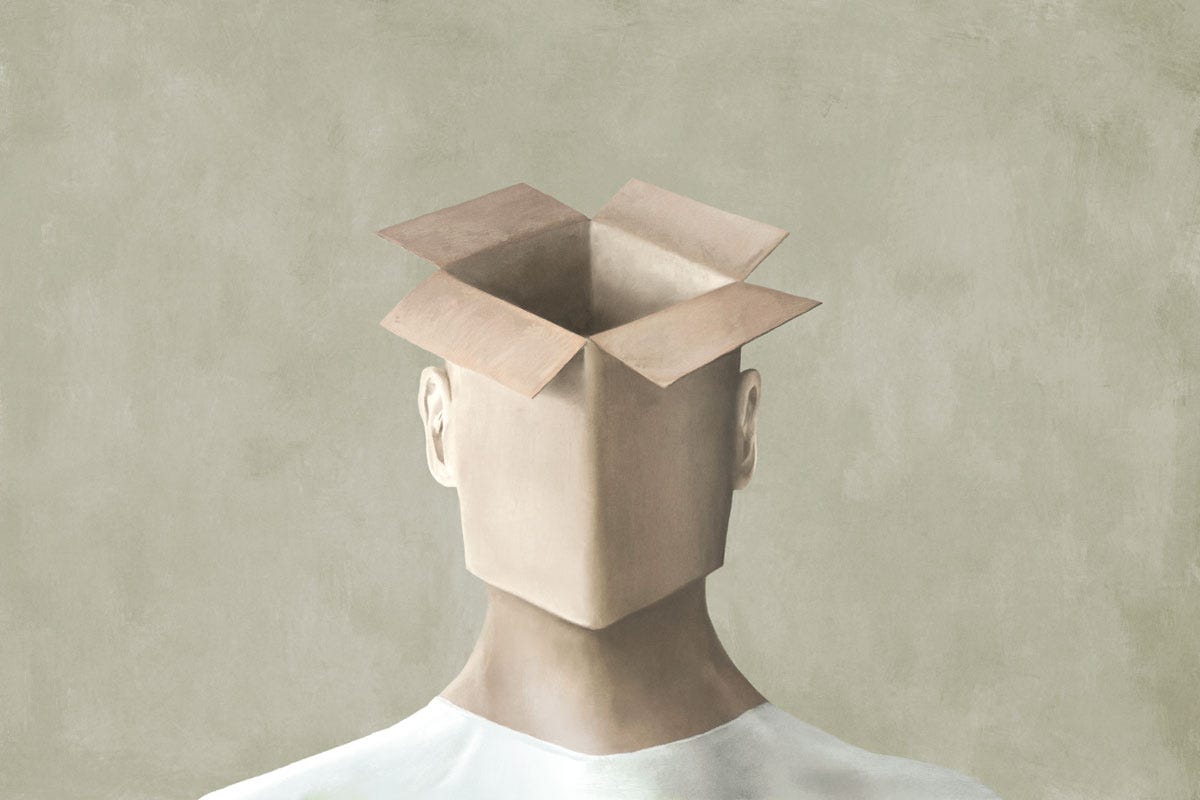
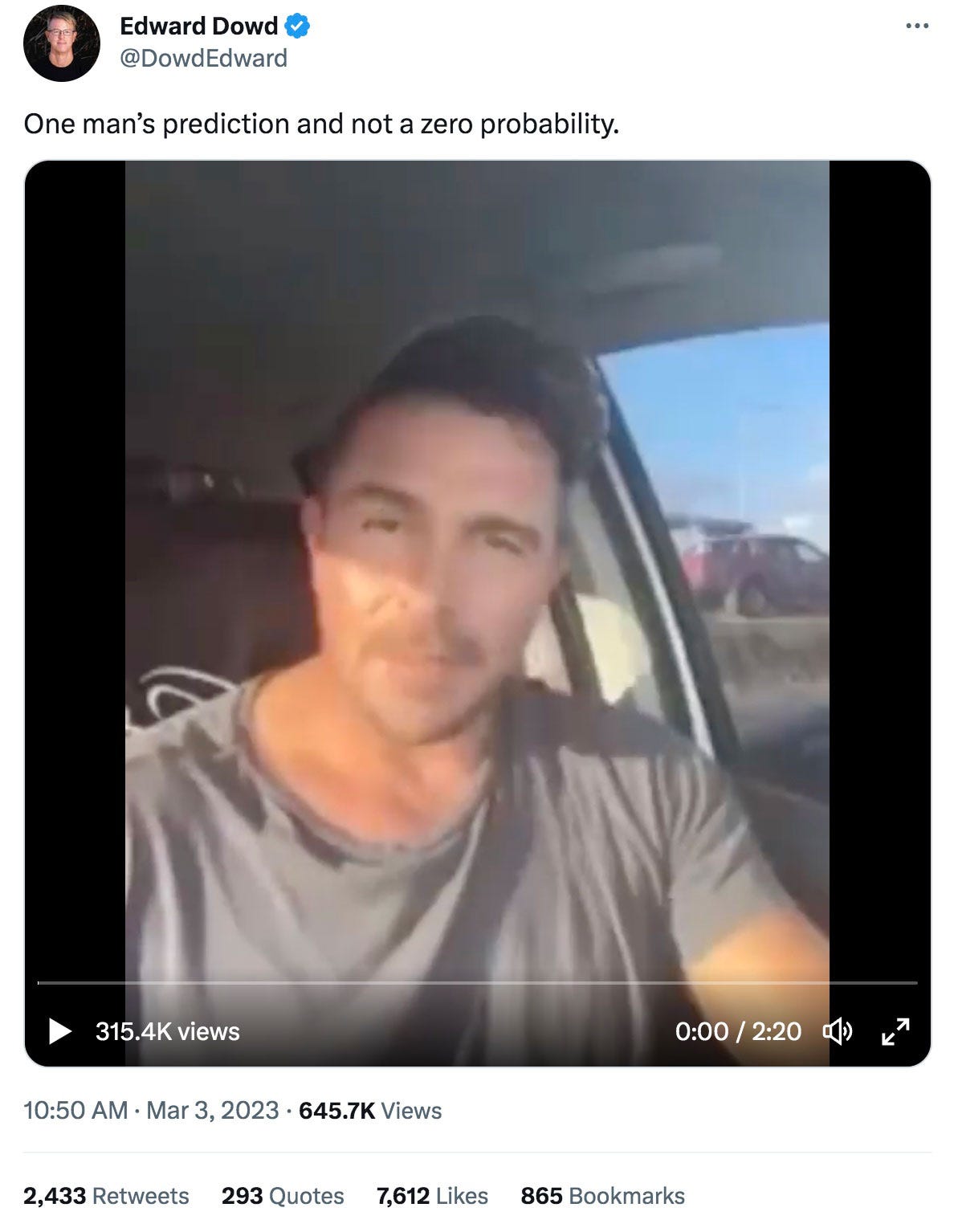
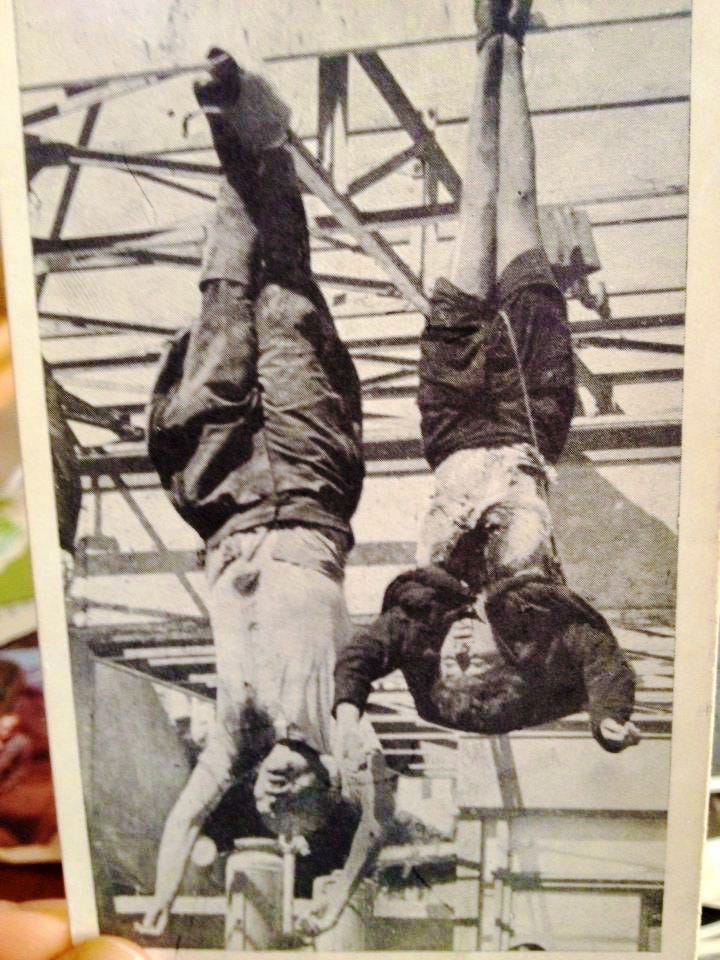
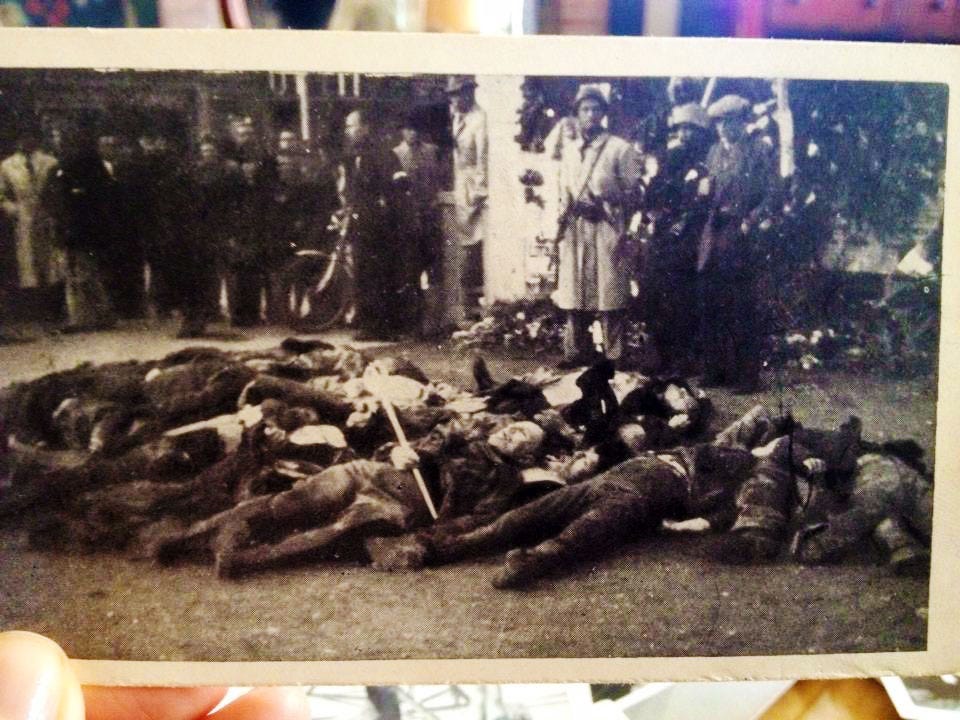
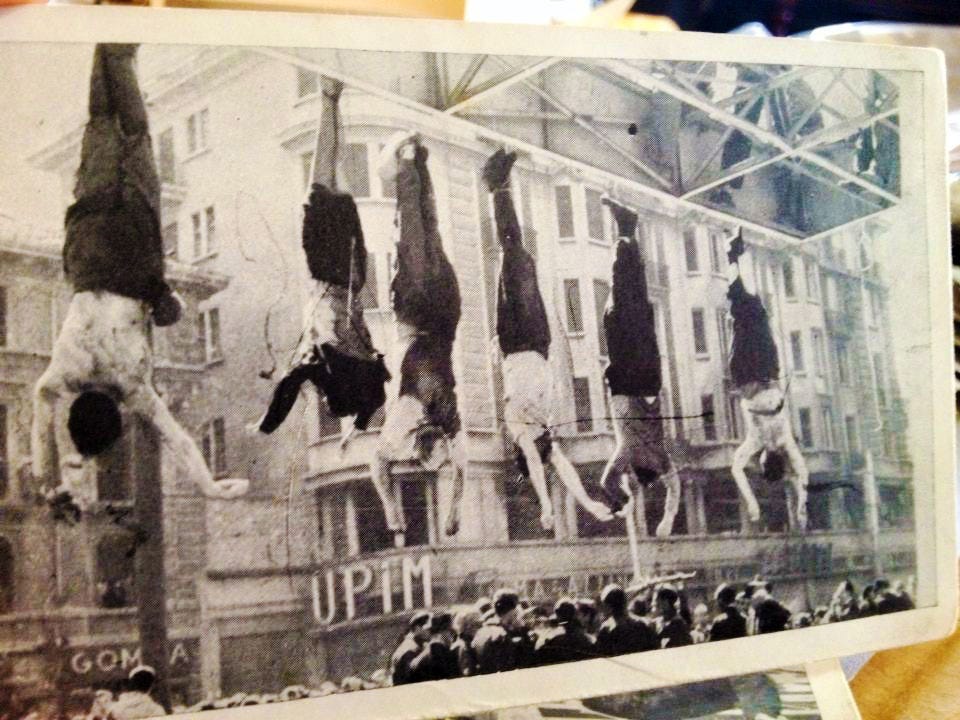
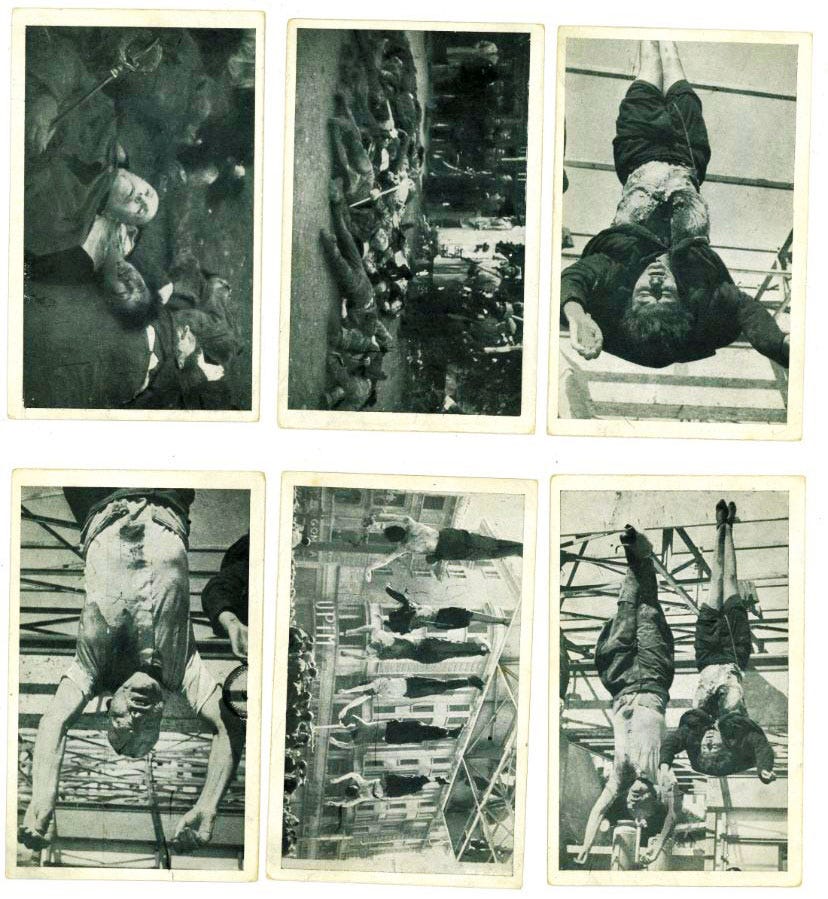
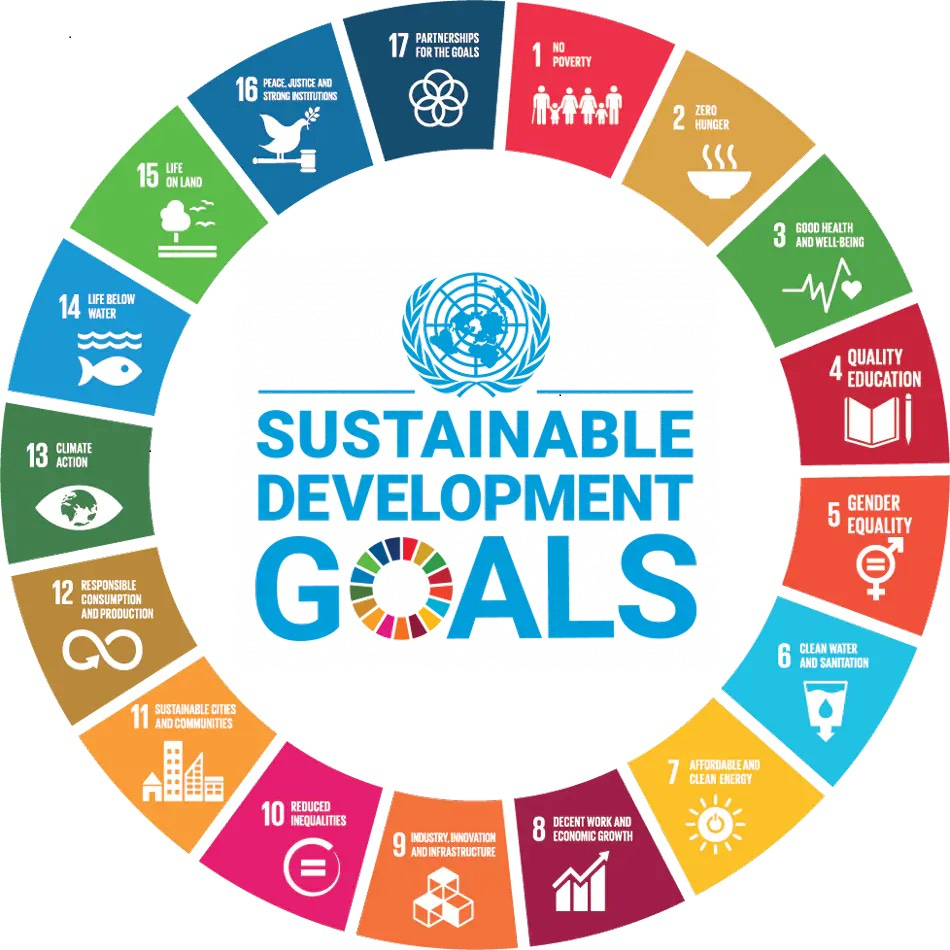
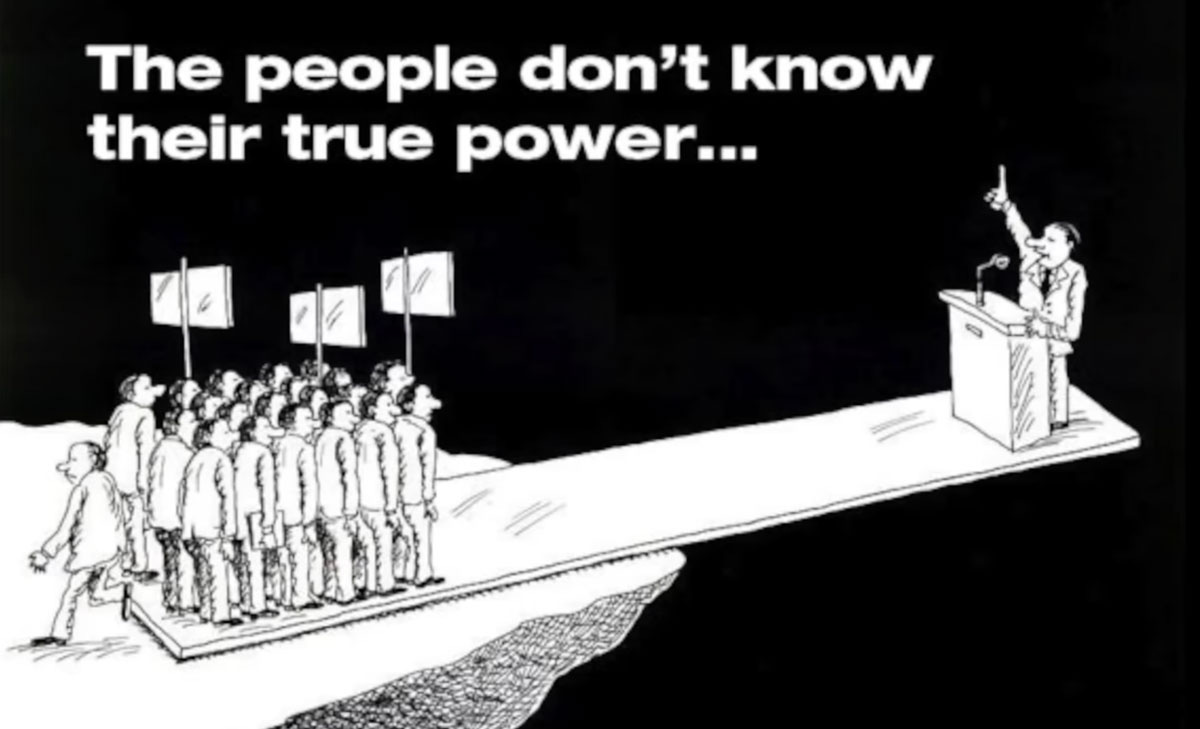
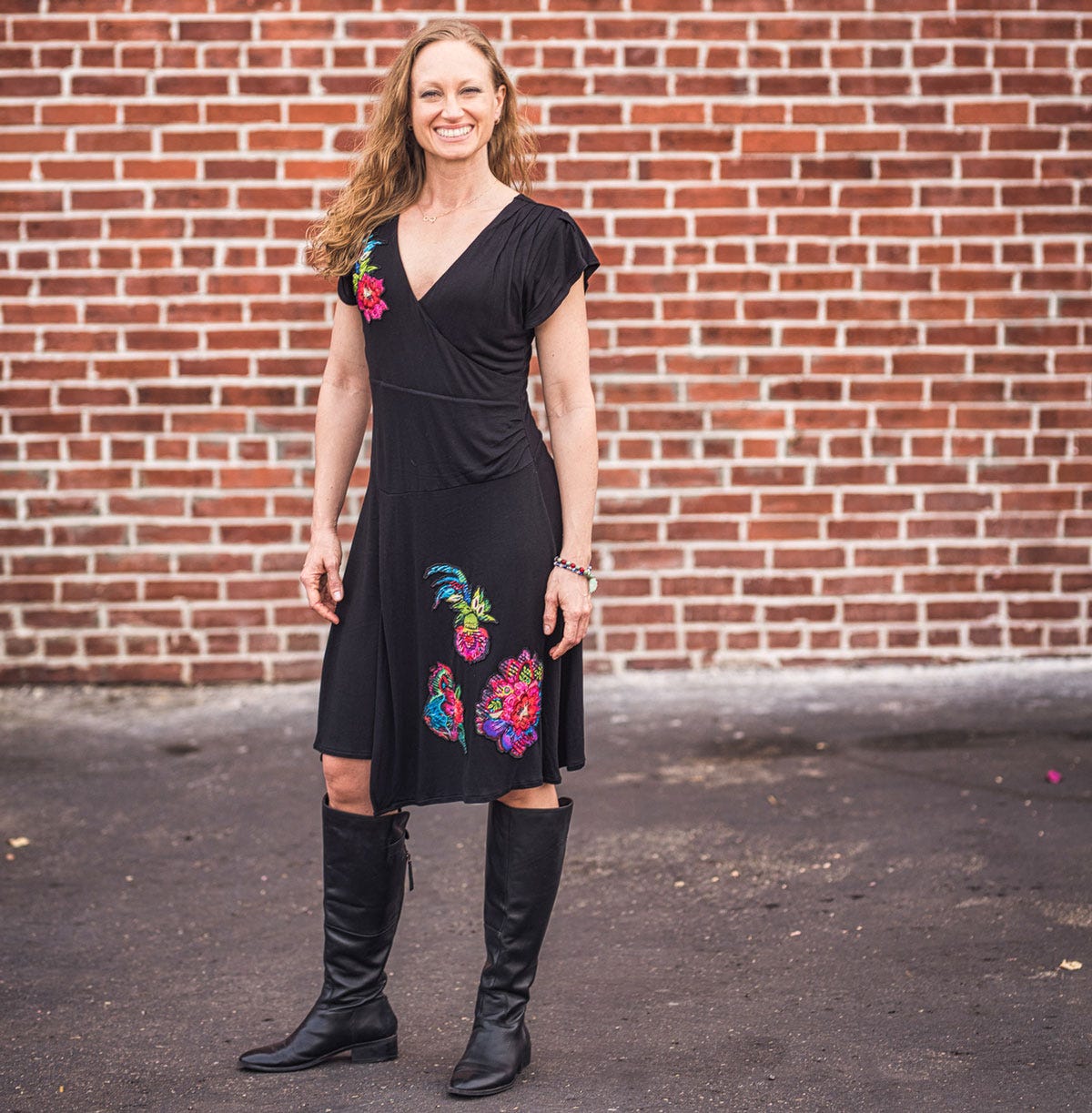
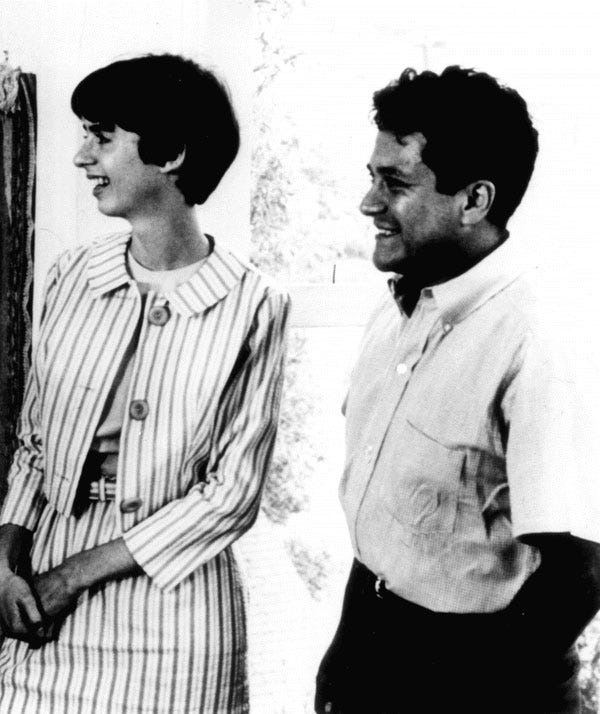




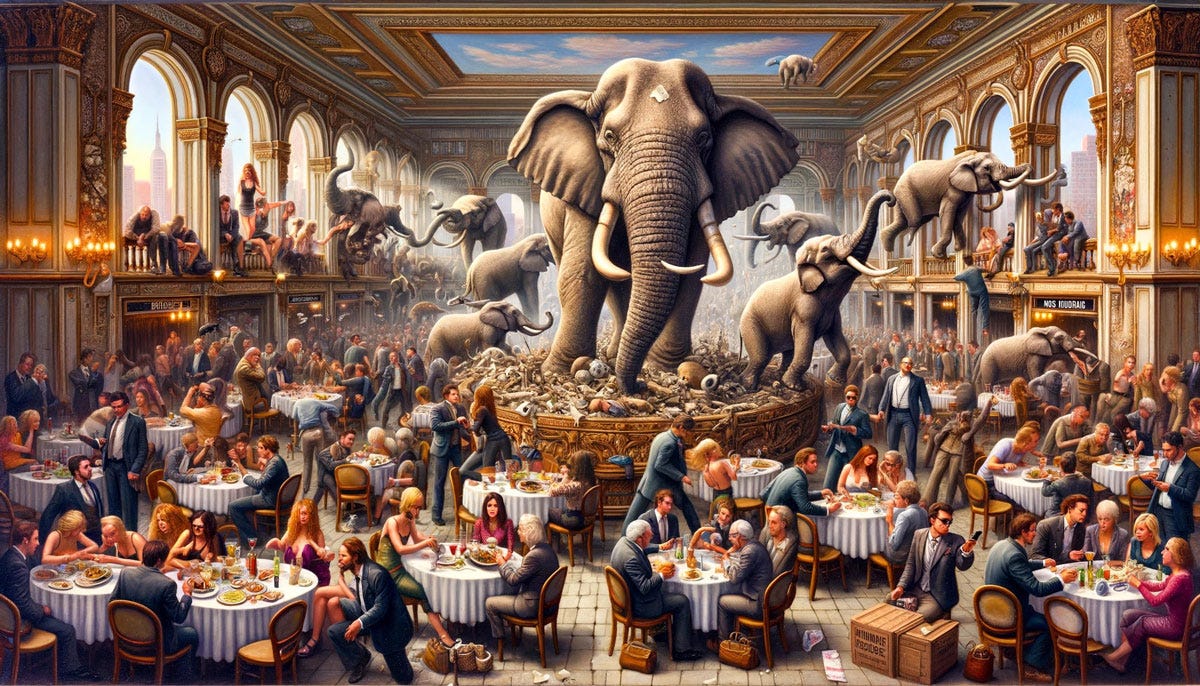
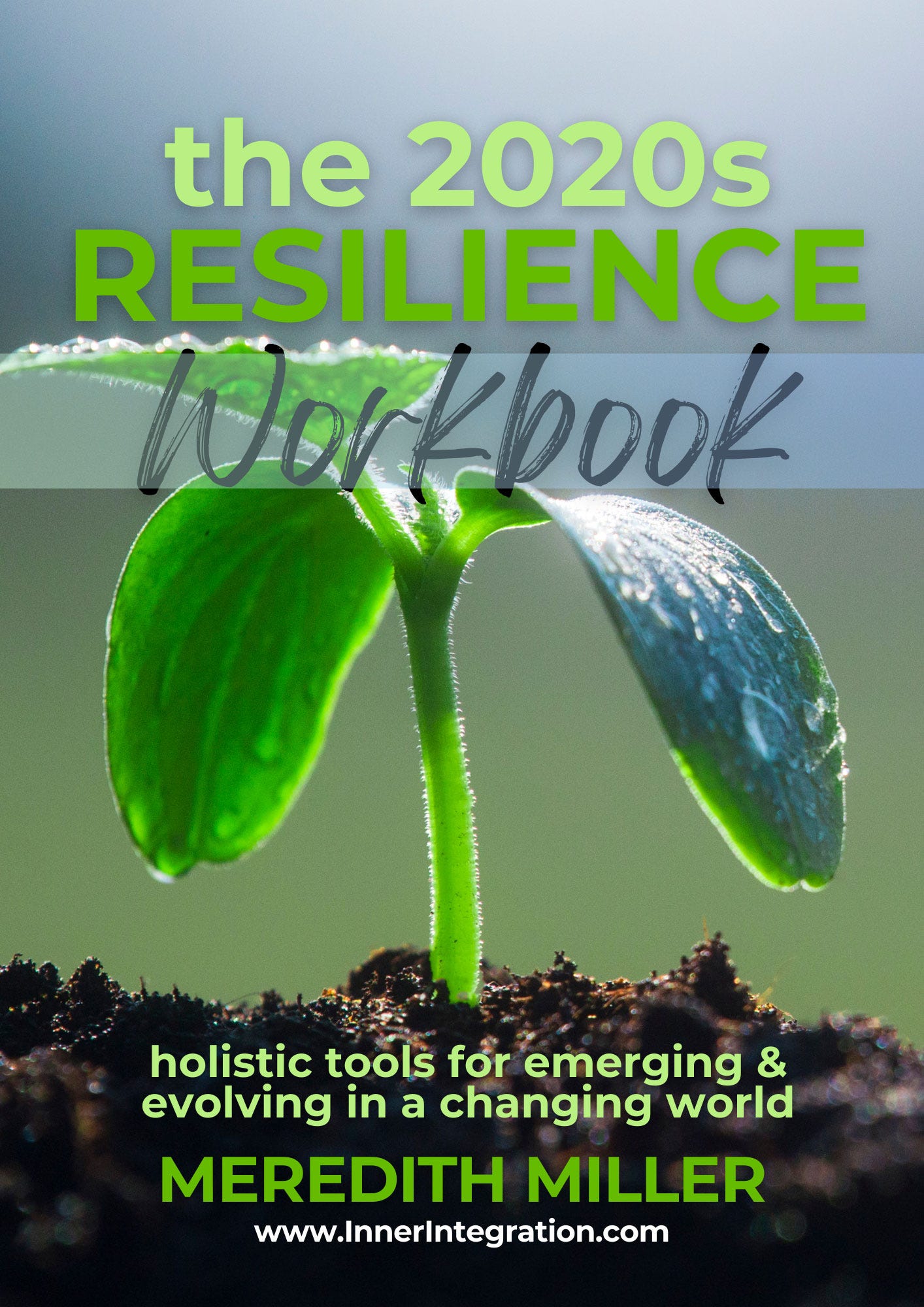
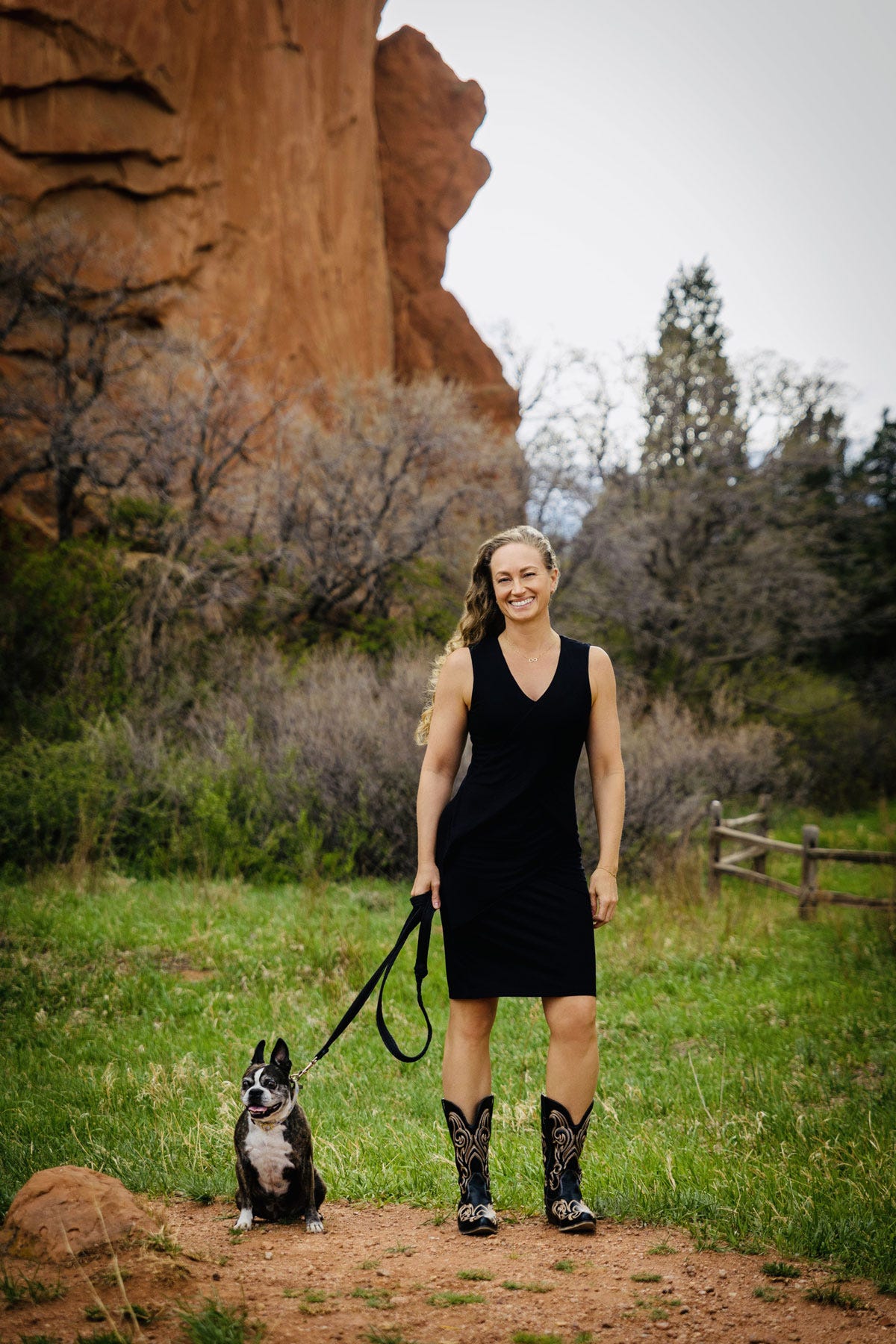

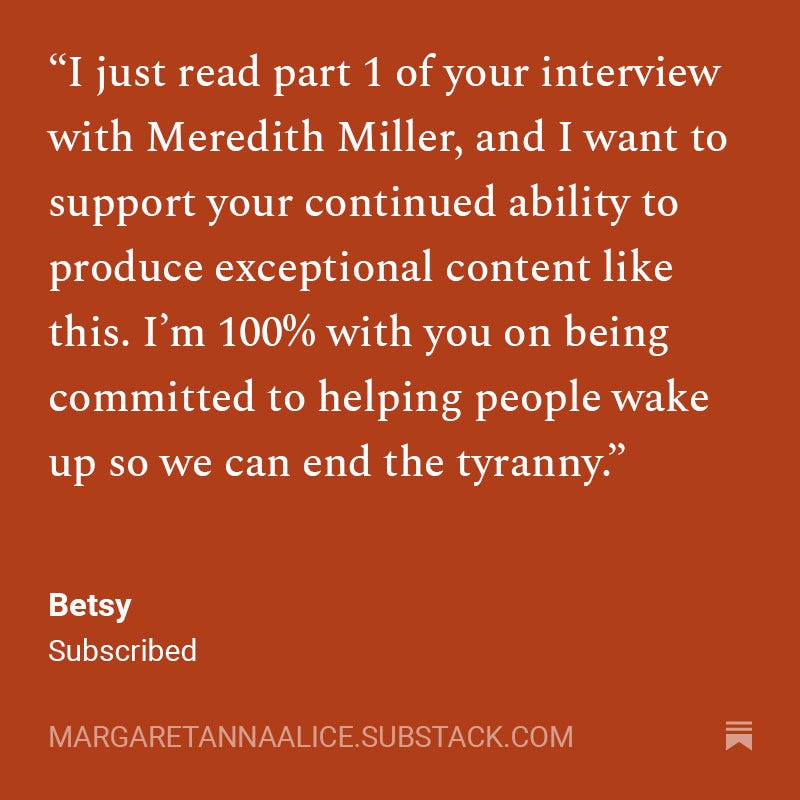


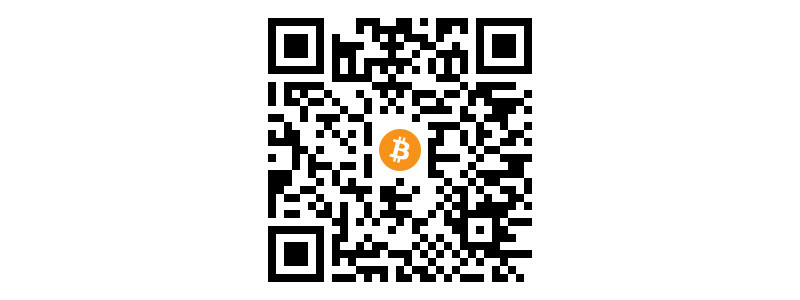

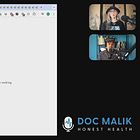
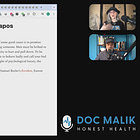

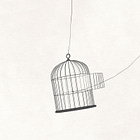



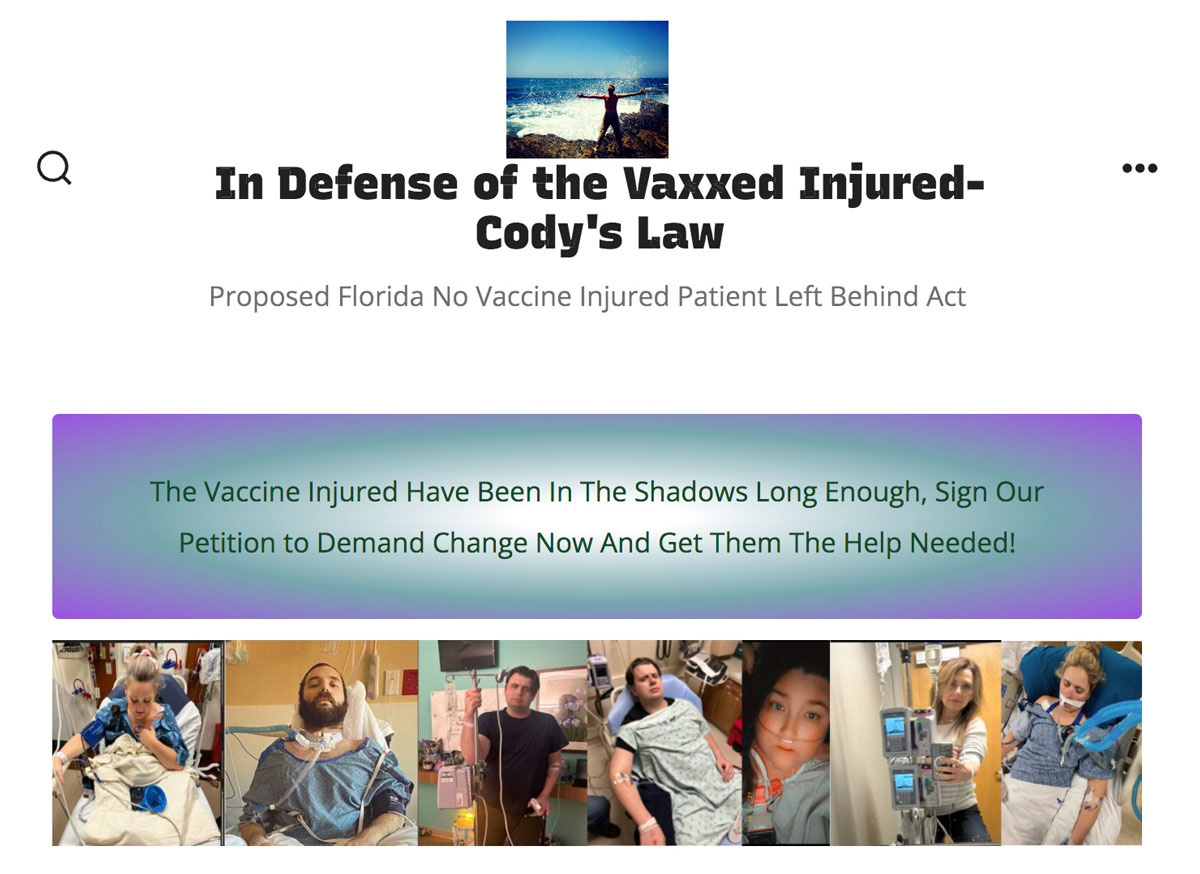


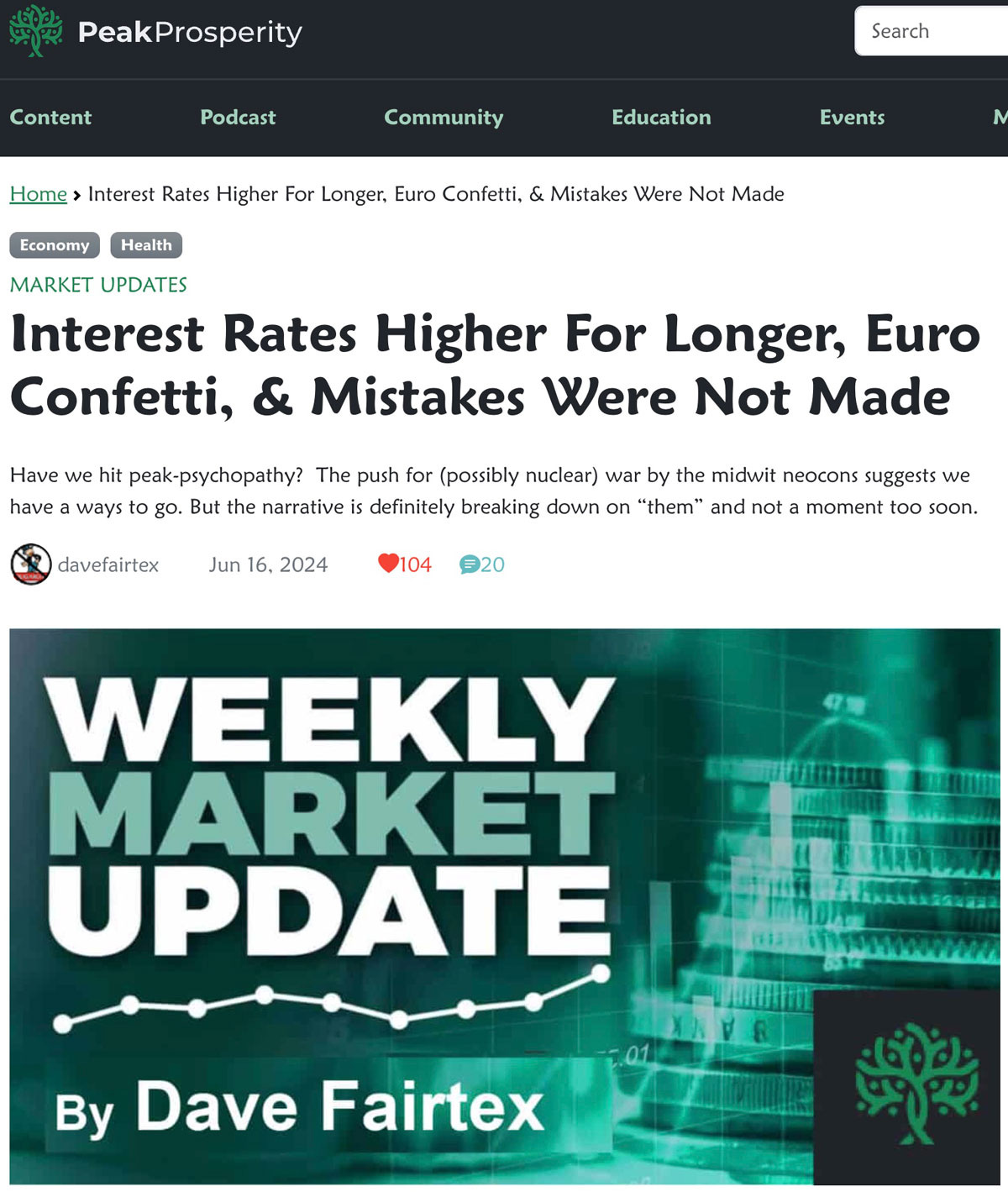
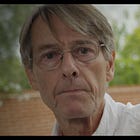
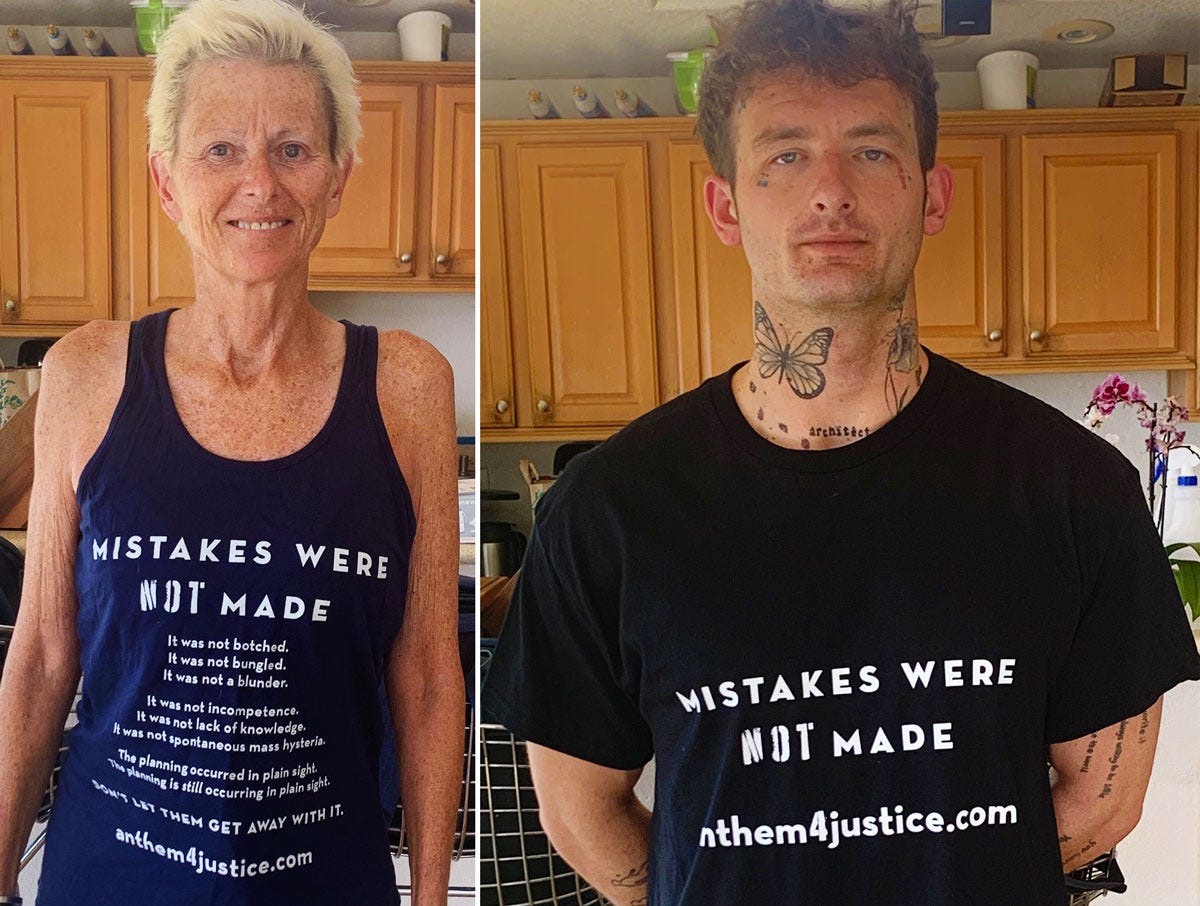
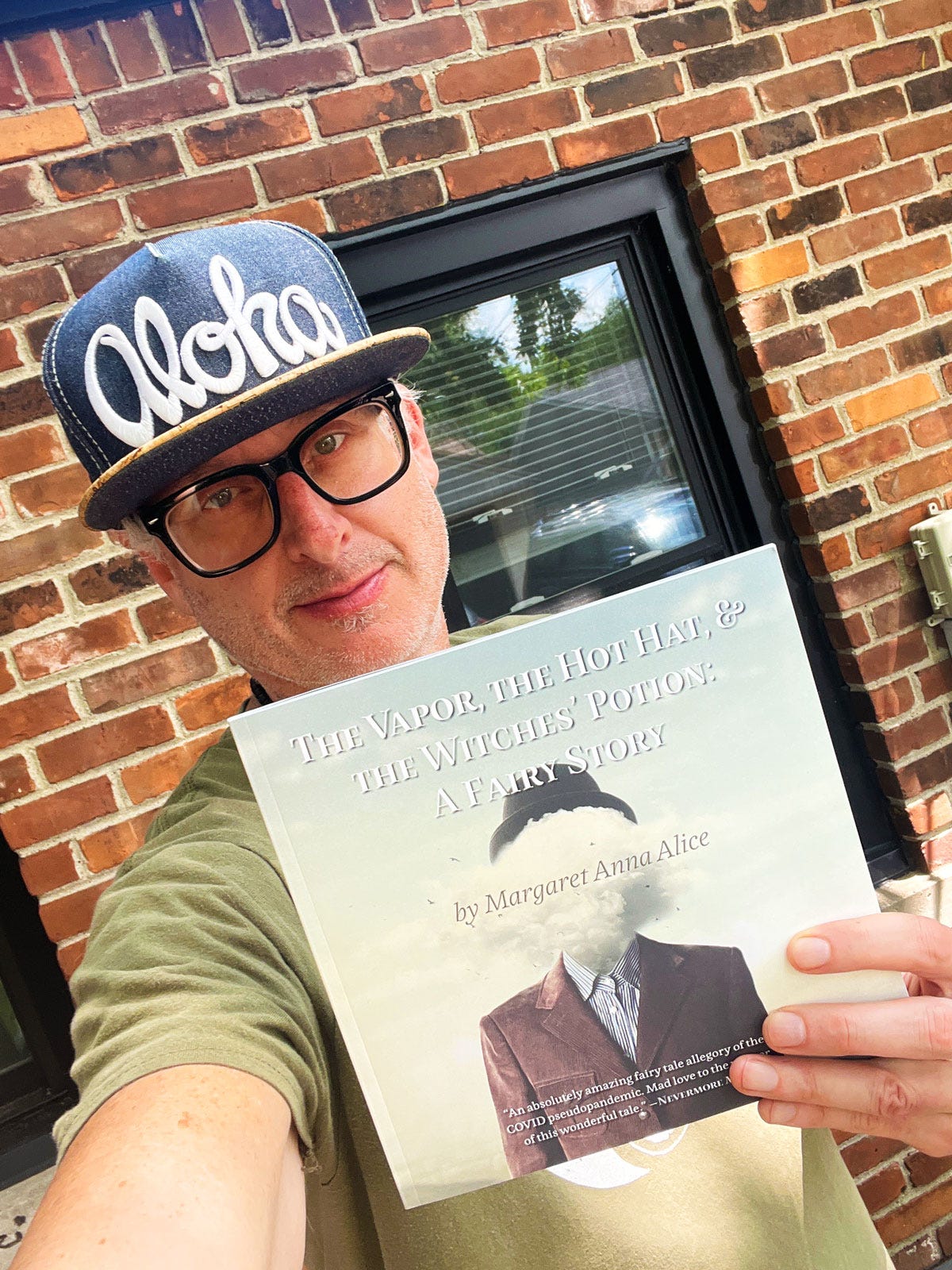

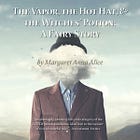
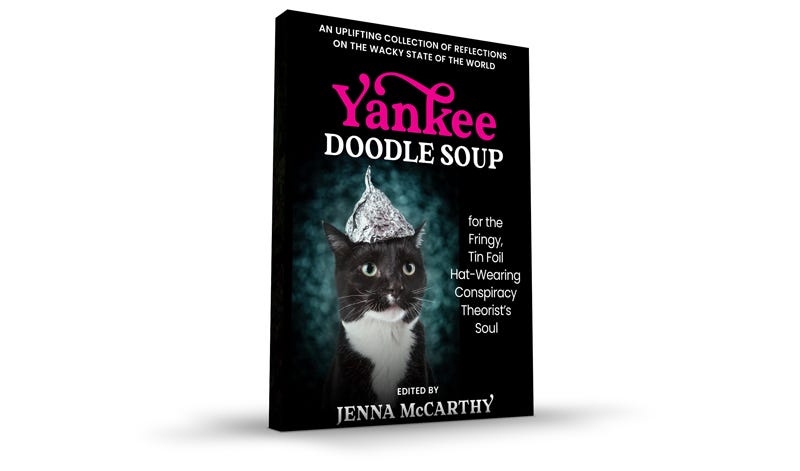
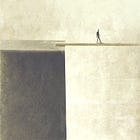
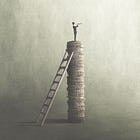
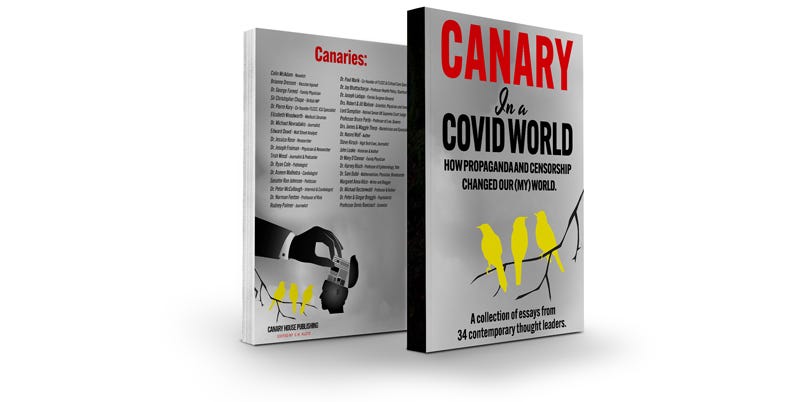

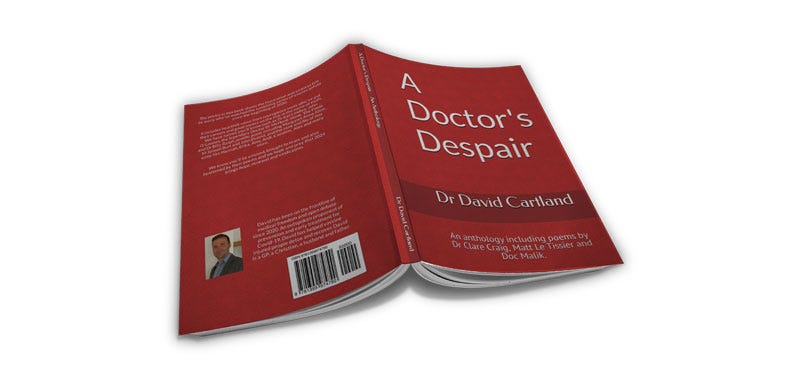
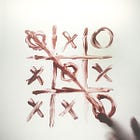




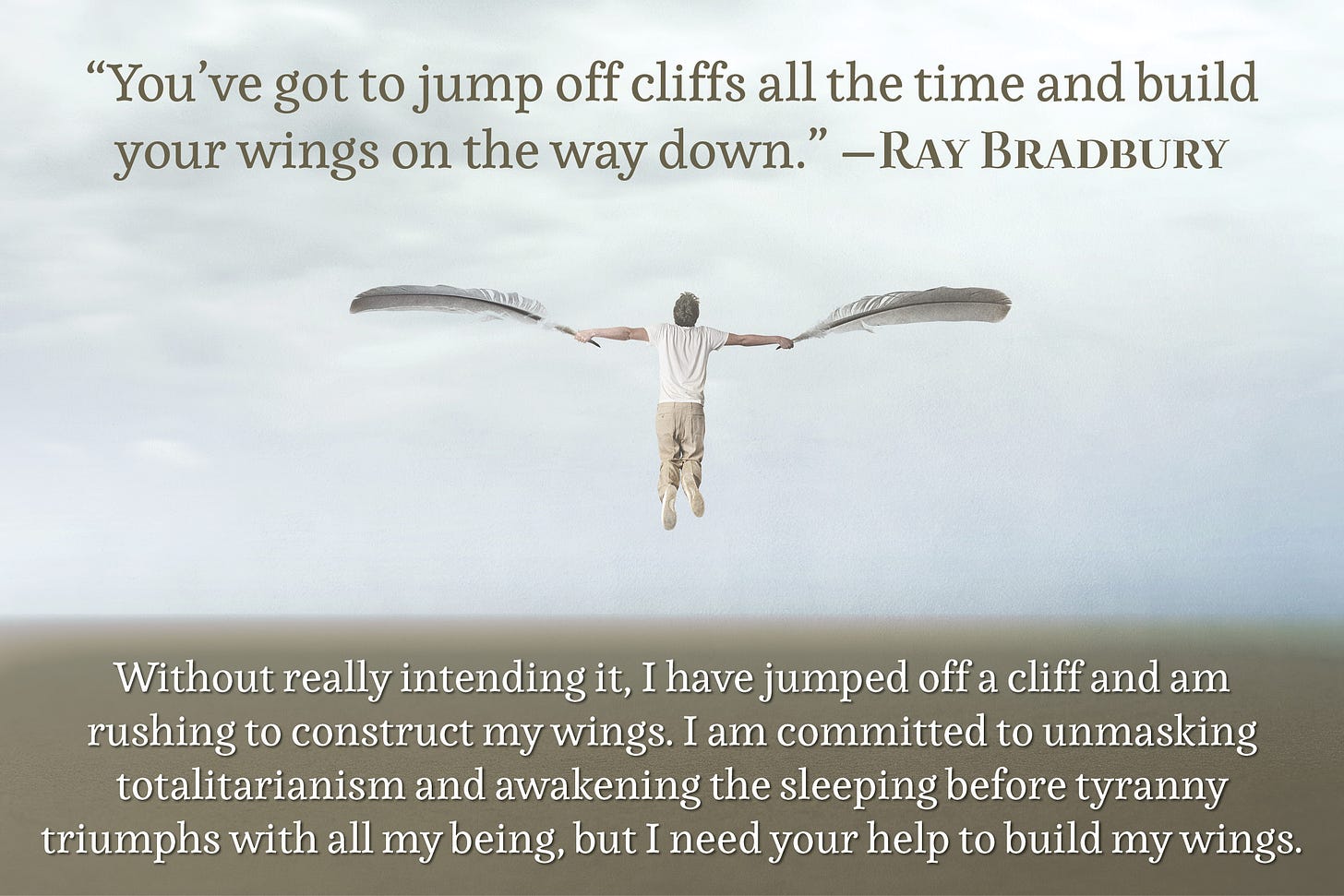



Delightful to see Dictators swinging in the town square - there is still hope yet!
This series is truly a brilliant, multifaceted gem.
thank you 💕